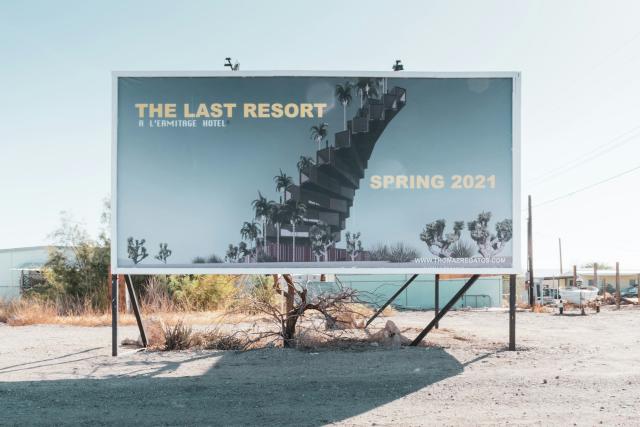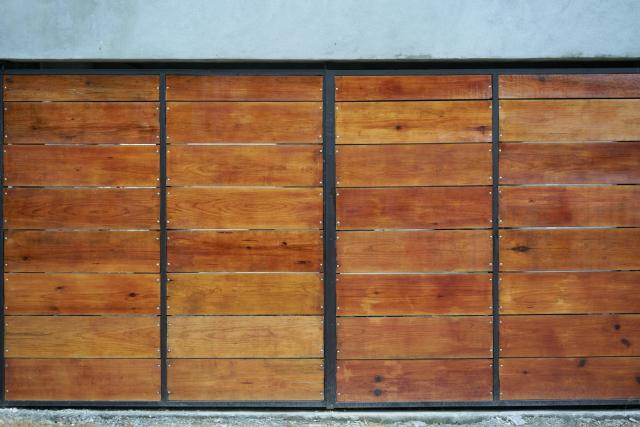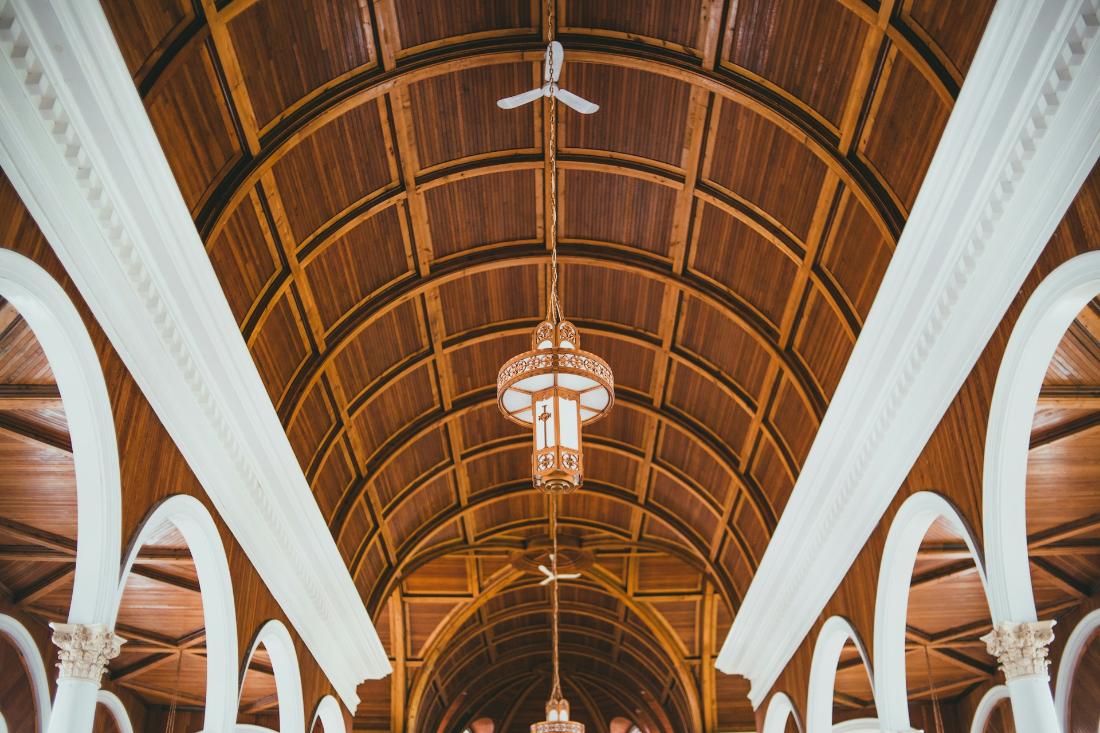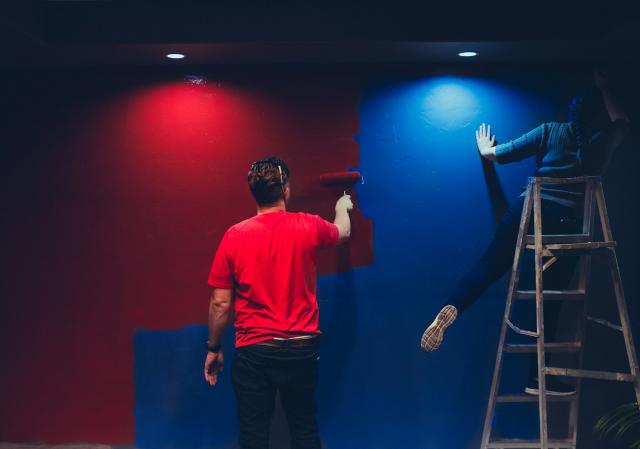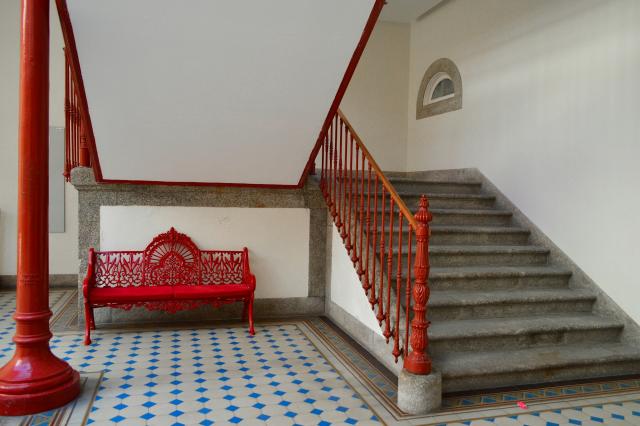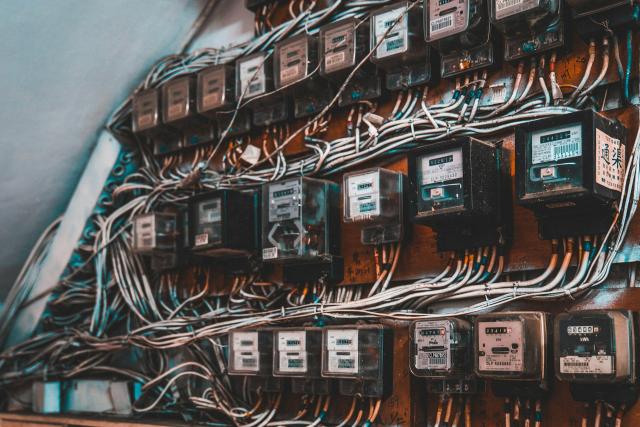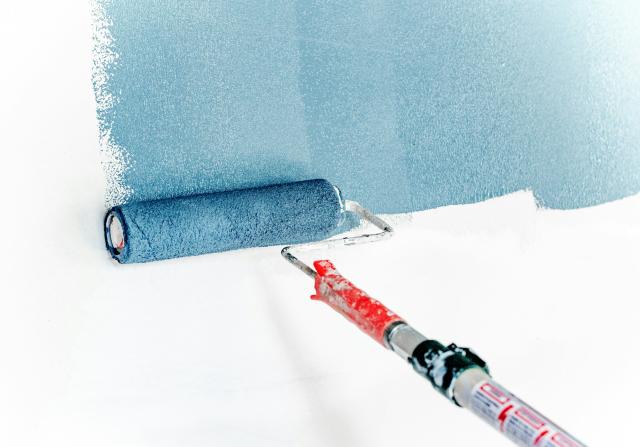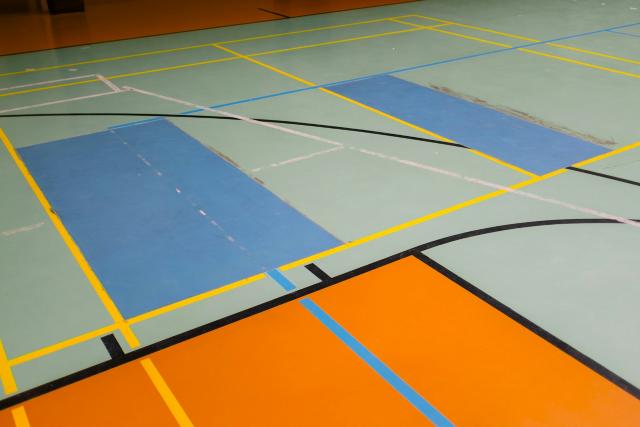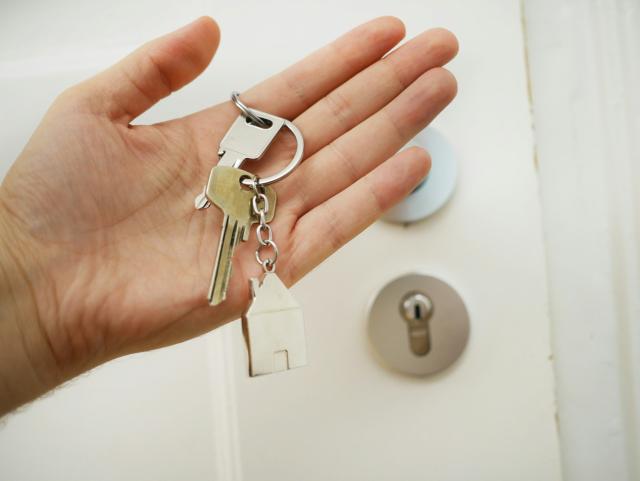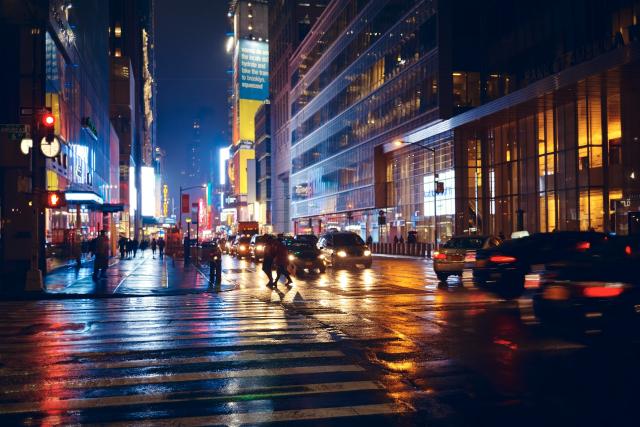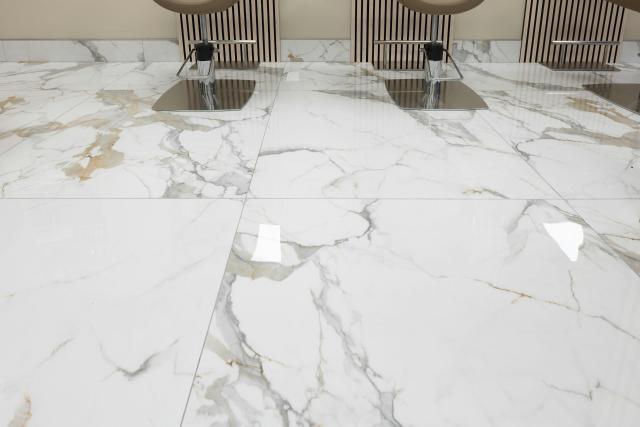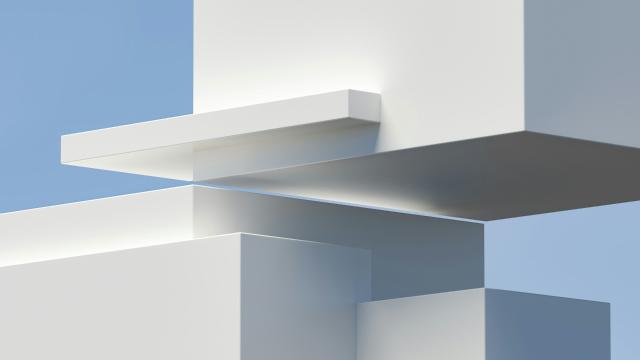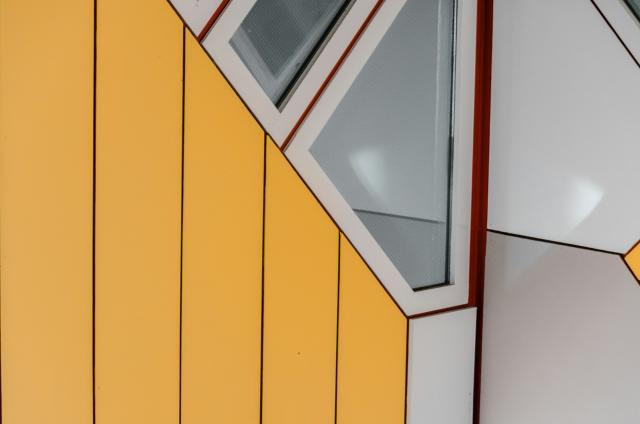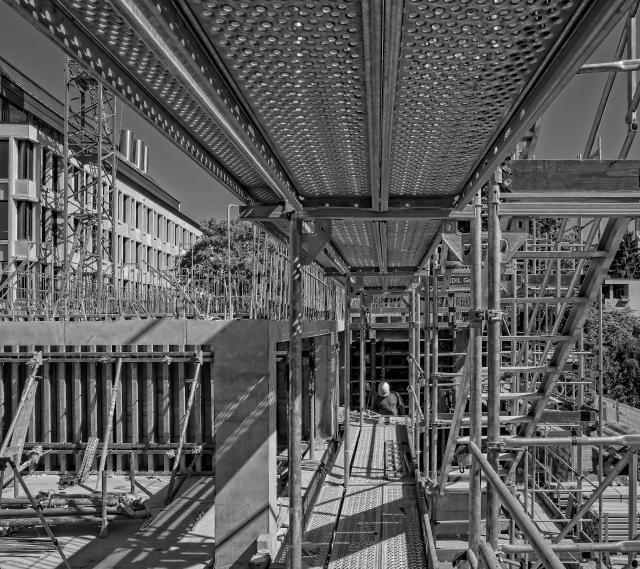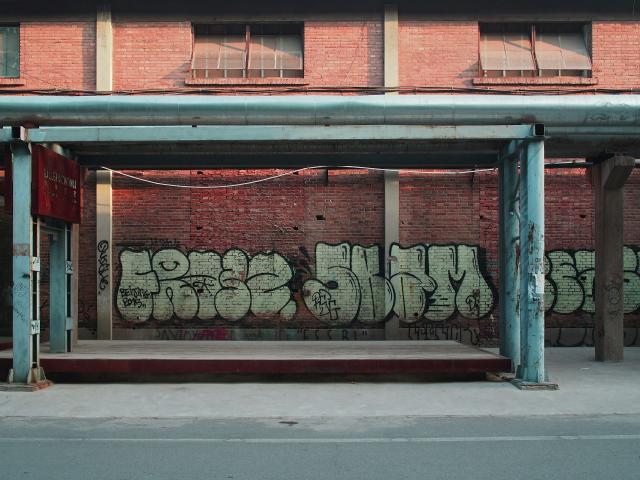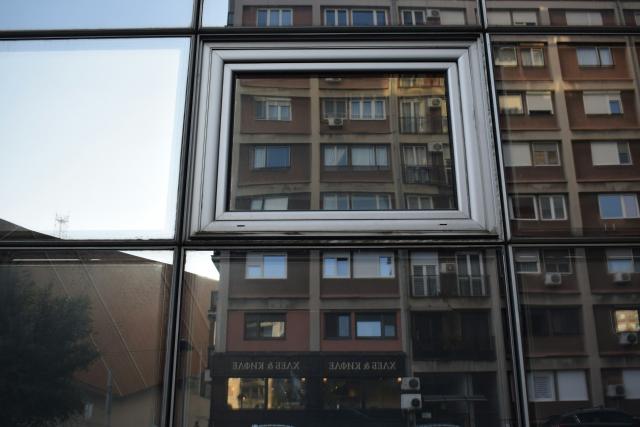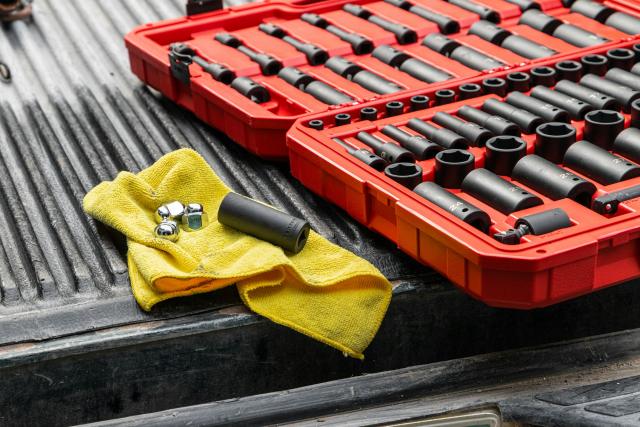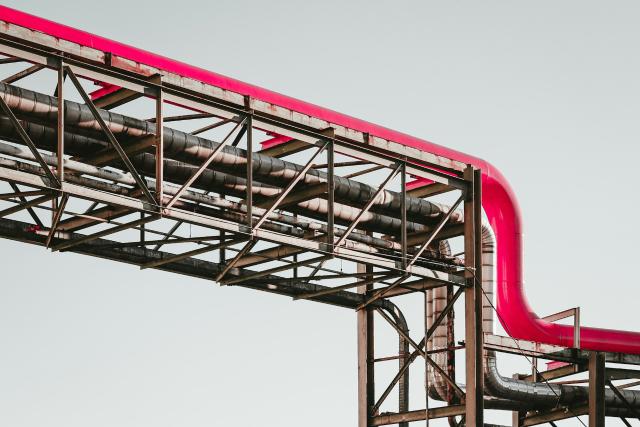Popular Ideas and Designs
Roof coating in industrial construction plays a very important role in terms of ensuring structural integrity, especially when considering harsh weather conditions in Malaysia.
Recently, a major heat reflective roof coating project for metal roof and gutter system in Senai was accomplished. The project highlights the advantages of this specially formulated roof Coating developed in Germany and examines how its impact enhances building efficiency.
Recently, a major heat reflective roof coating project for metal roof and gutter system in Senai was accomplished. The project highlights the advantages of this specially formulated roof Coating developed in Germany and examines how its impact enhances building efficiency.
Material
Advertisement Panel Supplier in Malaysia: The Architects of Brand Visibility and Public Engagement
In the dynamic visual symphony of a Malaysian cityscape, a unique language is spoken. It is not conveyed through words or music, but through colour, light, and scale. It is the language of brands communicating with the moving public, from the towering digital spectacles above Kuala Lumpur's highways to the elegant backlit panels in a shopping mall atrium. These are the canvases of modern commerce, the physical touchpoints where brand stories become public experiences. At the core of creating these impactful touchpoints stands a specialized and pivotal player: the advertisement panel supplier in Malaysia. This entity is far more than a simple fabricator of signs; it is an integrated solutions provider, a technical consultant, and a strategic partner in transforming marketing concepts into durable, captivating, and compliant physical installations that command attention in the public realm.
The journey of an advertisement panel begins with understanding its profound and varied roles within the Malaysian context. In a nation characterized by dense urban centres, bustling highway networks, and a vibrant retail culture, outdoor advertising serves as a dominant channel for mass communication. A panel is not merely a placeholder for a logo; it is a brand's ambassador in a specific location. It must perform multiple functions simultaneously: achieving instant visual cut-through in a cluttered environment, conveying a clear message to a fast-moving audience, reinforcing brand identity, and ultimately, influencing perception and driving action. Whether it is a massive billboard guiding highway traffic, a digital screen updating commuters at an LRT station, or a sleek point-of-purchase display in a boutique, each panel type serves a distinct strategic purpose. A sophisticated supplier approaches every project with this strategic understanding, recognizing that they are not just selling a product, but enabling a critical link in the marketing chain.
The modern advertisement panel supplier operates across several key categories, each demanding specialized expertise. The classic static billboard remains a cornerstone, but its execution has evolved dramatically. Today's supplier deals in engineering-grade materials designed to withstand Malaysia's tropical climate. This includes UV-resistant vinyl prints that won't fade under the intense sun, rigid aluminium composite panels (ACP) that provide a smooth, durable substrate, and robust steel frameworks engineered to resist monsoon winds. For premium locations, suppliers offer advanced printed fabrics tensioned over frames, creating a sleek, frameless visual. Beyond the traditional, the realm of illuminated advertising is where technology truly shines. This encompasses backlit lightboxes, using energy-efficient LED systems for uniform, vibrant illumination in airport lounges or mall directories. It extends to the pinnacle of outdoor advertising: large-format digital LED billboards. Here, the supplier's role expands to include sourcing high-brightness displays capable of daytime visibility, providing the media player hardware and content management software, and often offering ongoing technical support and maintenance packages to ensure 24/7 operational reliability.
The journey of an advertisement panel begins with understanding its profound and varied roles within the Malaysian context. In a nation characterized by dense urban centres, bustling highway networks, and a vibrant retail culture, outdoor advertising serves as a dominant channel for mass communication. A panel is not merely a placeholder for a logo; it is a brand's ambassador in a specific location. It must perform multiple functions simultaneously: achieving instant visual cut-through in a cluttered environment, conveying a clear message to a fast-moving audience, reinforcing brand identity, and ultimately, influencing perception and driving action. Whether it is a massive billboard guiding highway traffic, a digital screen updating commuters at an LRT station, or a sleek point-of-purchase display in a boutique, each panel type serves a distinct strategic purpose. A sophisticated supplier approaches every project with this strategic understanding, recognizing that they are not just selling a product, but enabling a critical link in the marketing chain.
The modern advertisement panel supplier operates across several key categories, each demanding specialized expertise. The classic static billboard remains a cornerstone, but its execution has evolved dramatically. Today's supplier deals in engineering-grade materials designed to withstand Malaysia's tropical climate. This includes UV-resistant vinyl prints that won't fade under the intense sun, rigid aluminium composite panels (ACP) that provide a smooth, durable substrate, and robust steel frameworks engineered to resist monsoon winds. For premium locations, suppliers offer advanced printed fabrics tensioned over frames, creating a sleek, frameless visual. Beyond the traditional, the realm of illuminated advertising is where technology truly shines. This encompasses backlit lightboxes, using energy-efficient LED systems for uniform, vibrant illumination in airport lounges or mall directories. It extends to the pinnacle of outdoor advertising: large-format digital LED billboards. Here, the supplier's role expands to include sourcing high-brightness displays capable of daytime visibility, providing the media player hardware and content management software, and often offering ongoing technical support and maintenance packages to ensure 24/7 operational reliability.
In the heart of a Malaysian café, a wall tells a story of generations. It is not a smooth, painted surface, but a layered collage of texture—the ghost of old paint, the gritty imprint of original plaster, and the raw, honest face of reclaimed brick. This is the power of the stripped wall, a design choice that has moved from the domain of edgy art galleries and boutique hotels into discerning homes and commercial spaces across the nation. However, achieving this coveted look of curated decay and authentic texture is an art form in itself, one that goes far beyond the swing of a demolition hammer. It demands a discerning eye for material, a deep understanding of architectural history, and access to specialized products. This is where the expertise of a stripped wall panel supplier in Malaysia becomes indispensable. They are not merely vendors of decorative surfaces; they are purveyors of patina, consultants in controlled deconstruction, and partners in crafting walls with soul and a profound sense of place.
The stripped wall aesthetic represents a significant philosophical shift in interior design. It is a deliberate move away from the flawless, the new, and the homogenous. Instead, it embraces the beauty of imperfection, the narrative of time, and the tactile quality of raw materials. In a rapidly modernizing nation, this aesthetic provides a powerful anchor—a tangible connection to history, craft, and materiality. It transforms a wall from a passive boundary into an active storytelling element. Whether it's the rustic warmth of exposed brick, the graphic linearity of reclaimed timber planks, or the sculptural, mottled surface of cleaned-back concrete, each stripped finish carries a unique emotional weight. It can make a space feel grounded and authentic, industrial and dynamic, or artistically raw and intellectually stimulating. This trend speaks to a desire for environments that feel genuine, layered, and inherently interesting, offering a visual and tactile richness that flat paint simply cannot achieve.
The journey to a masterfully stripped wall often begins with the original substrate itself. In heritage renovations—particularly of colonial shophouses in Penang or Malacca, or older brick buildings in Kuala Lumpur—the process is one of careful architectural archaeology. Here, a supplier’s role is to provide the tools and expertise for careful, controlled revelation. They supply specialized chemical paint strippers that can safely remove layers of modern latex paint without damaging the historic lime plaster or brick beneath. They offer gentle mechanical tools, like rotary brushes with soft bristles, for meticulous cleaning. For brick walls, they provide penetrating sealers and matte finishes that protect the masonry from Malaysia’s humidity while allowing it to “breathe,” preventing moisture trapping and salt efflorescence. This historical approach is delicate and respectful, aiming to uncover and preserve the original fabric of the building, celebrating its age and craft rather than erasing it.
The stripped wall aesthetic represents a significant philosophical shift in interior design. It is a deliberate move away from the flawless, the new, and the homogenous. Instead, it embraces the beauty of imperfection, the narrative of time, and the tactile quality of raw materials. In a rapidly modernizing nation, this aesthetic provides a powerful anchor—a tangible connection to history, craft, and materiality. It transforms a wall from a passive boundary into an active storytelling element. Whether it's the rustic warmth of exposed brick, the graphic linearity of reclaimed timber planks, or the sculptural, mottled surface of cleaned-back concrete, each stripped finish carries a unique emotional weight. It can make a space feel grounded and authentic, industrial and dynamic, or artistically raw and intellectually stimulating. This trend speaks to a desire for environments that feel genuine, layered, and inherently interesting, offering a visual and tactile richness that flat paint simply cannot achieve.
The journey to a masterfully stripped wall often begins with the original substrate itself. In heritage renovations—particularly of colonial shophouses in Penang or Malacca, or older brick buildings in Kuala Lumpur—the process is one of careful architectural archaeology. Here, a supplier’s role is to provide the tools and expertise for careful, controlled revelation. They supply specialized chemical paint strippers that can safely remove layers of modern latex paint without damaging the historic lime plaster or brick beneath. They offer gentle mechanical tools, like rotary brushes with soft bristles, for meticulous cleaning. For brick walls, they provide penetrating sealers and matte finishes that protect the masonry from Malaysia’s humidity while allowing it to “breathe,” preventing moisture trapping and salt efflorescence. This historical approach is delicate and respectful, aiming to uncover and preserve the original fabric of the building, celebrating its age and craft rather than erasing it.
In the landscape of Malaysian interior design, a fascinating and powerful aesthetic has moved from the warehouses of old Penang to the gleaming new lofts of Kuala Lumpur. It is the look of exposed structure, of honest materials, and of spatial authenticity—the industrial chic epitomized by the stripped ceiling. Once a sign of an unfinished project, the exposed ceiling has been reclaimed as a deliberate design statement, celebrating the raw bones of a building. However, achieving this look is not about simple neglect; it requires a discerning eye, meticulous preparation, and crucially, the right materials. This is where the role of the specialized stripped ceiling supplier in Malaysia becomes pivotal. They are not just vendors of panels, but purveyors of texture, consultants in urban archaeology, and partners in transforming the often-forgotten “fifth wall” into the most compelling feature of a space.
To understand the essence of a stripped ceiling, one must first appreciate its visual and psychological impact. Unlike the pristine, uniform plane of a conventional plasterboard ceiling, a stripped ceiling reveals a building’s inner life. It exposes the rhythmic geometry of beams, the orderly chaos of conduits and ductwork, and the solid mass of the concrete slab above. This transparency creates an immediate sense of volume and industrial grandeur, making even modest spaces feel loft-like and expansive. It speaks to a design philosophy that values authenticity over artifice, where the story of the building’s construction is not hidden but celebrated. In a nation rapidly modernizing, this aesthetic also offers a tangible connection to the materiality of construction—the ruggedness of concrete, the strength of steel—bringing a grounded, urban edge to residential, commercial, and hospitality interiors. It is a choice that feels both modern and timeless, rooted in a raw, unpretentious beauty.
However, achieving this look is a sophisticated endeavor, not a default condition. The concrete slab revealed when a false ceiling is removed is rarely, if ever, “design-ready.” It is often a landscape of construction imperfections: uneven pours, leftover formwork tie-holes, protruding bolts, and stains from the curing process. The first and most critical role of a stripped ceiling supplier is to provide the materials and expertise for the essential process of surface preparation and refinement. This goes beyond mere cleaning. They supply specialized skim coatings and architectural-grade patching compounds designed to fill imperfections and create a uniform surface texture without losing the authentic character of the concrete. They provide high-build, breathable primers that stabilize the surface and ensure adhesion for any subsequent treatments. For suppliers focused on a more finished industrial look, they offer micro-toppings—thin, polymer-modified cement overlays that can be troweled to a remarkably smooth finish, creating a seamless, monolithic plane that still reads as concrete. This stage transforms a rough, unfinished slab into a “designed” exposed ceiling, elevating it from a construction substrate to an architectural finish.
To understand the essence of a stripped ceiling, one must first appreciate its visual and psychological impact. Unlike the pristine, uniform plane of a conventional plasterboard ceiling, a stripped ceiling reveals a building’s inner life. It exposes the rhythmic geometry of beams, the orderly chaos of conduits and ductwork, and the solid mass of the concrete slab above. This transparency creates an immediate sense of volume and industrial grandeur, making even modest spaces feel loft-like and expansive. It speaks to a design philosophy that values authenticity over artifice, where the story of the building’s construction is not hidden but celebrated. In a nation rapidly modernizing, this aesthetic also offers a tangible connection to the materiality of construction—the ruggedness of concrete, the strength of steel—bringing a grounded, urban edge to residential, commercial, and hospitality interiors. It is a choice that feels both modern and timeless, rooted in a raw, unpretentious beauty.
However, achieving this look is a sophisticated endeavor, not a default condition. The concrete slab revealed when a false ceiling is removed is rarely, if ever, “design-ready.” It is often a landscape of construction imperfections: uneven pours, leftover formwork tie-holes, protruding bolts, and stains from the curing process. The first and most critical role of a stripped ceiling supplier is to provide the materials and expertise for the essential process of surface preparation and refinement. This goes beyond mere cleaning. They supply specialized skim coatings and architectural-grade patching compounds designed to fill imperfections and create a uniform surface texture without losing the authentic character of the concrete. They provide high-build, breathable primers that stabilize the surface and ensure adhesion for any subsequent treatments. For suppliers focused on a more finished industrial look, they offer micro-toppings—thin, polymer-modified cement overlays that can be troweled to a remarkably smooth finish, creating a seamless, monolithic plane that still reads as concrete. This stage transforms a rough, unfinished slab into a “designed” exposed ceiling, elevating it from a construction substrate to an architectural finish.
In Malaysia, colour is more than decoration; it is a language. It is the cheerful turquoise of a Peranakan shophouse in Penang, the serene white of a mosque's dome against a blue sky, and the bold accent wall in a modern KL apartment that declares a homeowner's personality. Yet, paint in this tropical climate is tasked with a role far more profound than aesthetics alone. It is the primary shield protecting our buildings from a relentless environmental onslaught: equatorial sun, torrential monsoon rains, and pervasive humidity that encourages mould and decay. The professional who masters this complex interplay of beauty and brawn is the paint specialist. This expert is far more than a person with a brush; they are a chemist, a surface diagnostician, a colour consultant, and a craftsman whose work preserves property value, enhances well-being, and literally adds a fresh layer of life to our surroundings.
The relationship between paint and the Malaysian environment is a constant, delicate negotiation. The intensity of ultraviolet (UV) radiation here is among the highest in the world, causing pigments to break down and fade, and binders to chalk and deteriorate at an accelerated rate. This is followed by heavy, wind-driven rain that tests the integrity of every painted surface, seeking out microscopic cracks to infiltrate, leading to blistering and peeling. Meanwhile, high humidity creates a perfect incubator for mould and algae, which can stain and degrade paint films from beneath. A paint specialist approaches their craft with a deep respect for these forces. Their expertise lies not merely in application, but in the strategic selection of paint systems engineered specifically to resist these tropical challenges. They understand that a beautiful finish that fails in two years is not a success; their goal is to create a durable, long-lasting skin that protects the substrate while maintaining its colour and sheen for as long as possible.
The journey to a flawless finish begins long before the first can is opened. It starts with a critical on-site assessment where the specialist acts as a detective, diagnosing the story written on the existing walls. Is that patch of discolouration a water stain from a hidden leak, or is it mould feeding on organic deposits in a poorly ventilated bathroom? Are the cracks superficial hairline fractures in the plaster, or do they indicate underlying structural movement? Is the peeling paint due to moisture, poor adhesion from a previous glossy surface, or the use of an inferior, non-breathable paint on a damp wall? This diagnostic phase is crucial. Treating the symptom—simply painting over mould or a water stain—is a temporary and ultimately futile exercise. The specialist identifies the root cause, whether it requires fixing a leak, improving ventilation, or rectifying surface preparation errors from a previous job. Only by solving the underlying problem can a new paint system perform as intended.
The relationship between paint and the Malaysian environment is a constant, delicate negotiation. The intensity of ultraviolet (UV) radiation here is among the highest in the world, causing pigments to break down and fade, and binders to chalk and deteriorate at an accelerated rate. This is followed by heavy, wind-driven rain that tests the integrity of every painted surface, seeking out microscopic cracks to infiltrate, leading to blistering and peeling. Meanwhile, high humidity creates a perfect incubator for mould and algae, which can stain and degrade paint films from beneath. A paint specialist approaches their craft with a deep respect for these forces. Their expertise lies not merely in application, but in the strategic selection of paint systems engineered specifically to resist these tropical challenges. They understand that a beautiful finish that fails in two years is not a success; their goal is to create a durable, long-lasting skin that protects the substrate while maintaining its colour and sheen for as long as possible.
The journey to a flawless finish begins long before the first can is opened. It starts with a critical on-site assessment where the specialist acts as a detective, diagnosing the story written on the existing walls. Is that patch of discolouration a water stain from a hidden leak, or is it mould feeding on organic deposits in a poorly ventilated bathroom? Are the cracks superficial hairline fractures in the plaster, or do they indicate underlying structural movement? Is the peeling paint due to moisture, poor adhesion from a previous glossy surface, or the use of an inferior, non-breathable paint on a damp wall? This diagnostic phase is crucial. Treating the symptom—simply painting over mould or a water stain—is a temporary and ultimately futile exercise. The specialist identifies the root cause, whether it requires fixing a leak, improving ventilation, or rectifying surface preparation errors from a previous job. Only by solving the underlying problem can a new paint system perform as intended.
The morning light catches the polished surface of a newly installed handrail in a Kuala Lumpur condominium, creating a gleaming path that guides residents safely between floors. The installation supervisor runs his hand along the smooth curve, checking every connection point. "People see metal and wood," he says thoughtfully. "We see the delicate balance between safety and beauty, between building codes and human comfort." In that moment, I understand that handrail contractors in Malaysia serve as the guardians of safe passage, creating systems that protect people while enhancing the aesthetic character of our built environment.
In Malaysia's diverse architectural landscape, handrails represent one of the most intimate points of contact between people and buildings. These essential safety features must withstand constant use while complementing architectural designs, requiring contractors who understand everything from structural engineering to ergonomics, from material science to accessibility requirements. This article explores the sophisticated world of handrail installation in Malaysia, the engineering and design considerations behind effective handrail systems, and how to identify contractors who can deliver both safety and aesthetic excellence.
The Malaysian Handrail Challenge: Engineering for Safety in a Tropical Environment
Malaysia's unique environmental conditions present specific challenges for handrail design and installation that demand specialized approaches. The combination of high humidity, intense sunlight, and heavy usage requires materials and finishes that can resist corrosion, maintain structural integrity, and withstand the test of time. I've inspected handrail systems where improper material selection led to premature deterioration, while properly engineered installations from the same period remained fully functional and attractive despite years of tropical exposure. A materials engineer specializing in architectural metals explained how they've developed specialized coating systems specifically for Malaysian conditions, creating protection that withstands both environmental challenges and constant human contact.
The diversity of Malaysian architecture demands equally diverse handrail solutions. A heritage shophouse restoration requires different approaches than a modern high-rise, while public buildings need solutions that accommodate high traffic volumes and varying user abilities. The most knowledgeable handrail contractors maintain expertise across multiple styles and periods, understanding how to create systems that feel appropriate to their architectural context while meeting modern safety standards. A conservation architect showed me how custom-designed handrails had preserved the character of a colonial-era building while bringing its safety features up to contemporary requirements.
Cultural considerations and usage patterns significantly influence handrail design throughout Malaysia. The need for systems that accommodate users of all ages and abilities, the importance of designs that feel secure without being institutional, and the preference for materials that age gracefully in our climate—all these factors shape what makes a handrail system successful in the Malaysian context. Contractors who understand these human factors can create solutions that feel intuitive rather than intrusive, that provide safety while maintaining the architectural quality that makes Malaysian spaces special.
In Malaysia's diverse architectural landscape, handrails represent one of the most intimate points of contact between people and buildings. These essential safety features must withstand constant use while complementing architectural designs, requiring contractors who understand everything from structural engineering to ergonomics, from material science to accessibility requirements. This article explores the sophisticated world of handrail installation in Malaysia, the engineering and design considerations behind effective handrail systems, and how to identify contractors who can deliver both safety and aesthetic excellence.
The Malaysian Handrail Challenge: Engineering for Safety in a Tropical Environment
Malaysia's unique environmental conditions present specific challenges for handrail design and installation that demand specialized approaches. The combination of high humidity, intense sunlight, and heavy usage requires materials and finishes that can resist corrosion, maintain structural integrity, and withstand the test of time. I've inspected handrail systems where improper material selection led to premature deterioration, while properly engineered installations from the same period remained fully functional and attractive despite years of tropical exposure. A materials engineer specializing in architectural metals explained how they've developed specialized coating systems specifically for Malaysian conditions, creating protection that withstands both environmental challenges and constant human contact.
The diversity of Malaysian architecture demands equally diverse handrail solutions. A heritage shophouse restoration requires different approaches than a modern high-rise, while public buildings need solutions that accommodate high traffic volumes and varying user abilities. The most knowledgeable handrail contractors maintain expertise across multiple styles and periods, understanding how to create systems that feel appropriate to their architectural context while meeting modern safety standards. A conservation architect showed me how custom-designed handrails had preserved the character of a colonial-era building while bringing its safety features up to contemporary requirements.
Cultural considerations and usage patterns significantly influence handrail design throughout Malaysia. The need for systems that accommodate users of all ages and abilities, the importance of designs that feel secure without being institutional, and the preference for materials that age gracefully in our climate—all these factors shape what makes a handrail system successful in the Malaysian context. Contractors who understand these human factors can create solutions that feel intuitive rather than intrusive, that provide safety while maintaining the architectural quality that makes Malaysian spaces special.
The hum of electricity is the silent heartbeat of every Malaysian home and business, a constant presence we notice only in its absence. I remember watching a master wiring contractor in Kuala Lumpur thread cables through a newly constructed wall with the precision of a surgeon, his hands moving with practiced certainty as he explained how each color-coded wire served a specific purpose in the building's electrical nervous system. In that moment, I understood that wiring contractors in Malaysia do far more than simply connect wires—they design and install the vital circulatory systems that power our modern lives, ensure our safety, and enable the technological conveniences we often take for granted.
In Malaysia's rapidly developing electrical landscape, professional wiring represents one of the most critical yet underappreciated components of building construction and renovation. From ensuring compliance with TNB regulations to integrating smart home technologies, wiring contractors must balance technical expertise, safety protocols, and forward-thinking planning. This article explores the essential role of professional wiring in Malaysia's built environment, the sophisticated systems that power contemporary living, and how to identify contractors who can deliver both safety and functionality for years to come.
The Malaysian Electrical Challenge: Wiring for Safety and Sophistication
Malaysia's unique environmental conditions and regulatory framework create specific challenges for electrical installations. The combination of high humidity, frequent thunderstorms, and tropical temperatures demands wiring systems and components that can withstand these demanding conditions. I've inspected properties where substandard wiring installations showed signs of deterioration within just a few years, while professionally installed systems remained perfectly safe and functional decades later.
The evolution of Malaysian electrical standards reflects our nation's growing sophistication in electrical safety. The latest guidelines from the Energy Commission (Suruhanjaya Tenaga) and TNB requirements have become increasingly comprehensive, addressing everything from earthing specifications to circuit protection. A veteran wiring contractor with thirty years of experience explained how Malaysian electrical standards have transformed from basic safety requirements to comprehensive systems that ensure both safety and performance. His detailed understanding of these evolving standards had prevented numerous potential hazards in homes and businesses across the Klang Valley.
The rapid pace of technological advancement adds another layer of complexity. Modern Malaysian homes now require wiring systems that can support high-speed internet, smart home automation, electric vehicle charging, and renewable energy integration—capabilities that simply didn't exist when many existing buildings were constructed. The most forward-thinking wiring contractors design systems with ample capacity and flexibility to accommodate future technologies that haven't even been invented yet.
In Malaysia's rapidly developing electrical landscape, professional wiring represents one of the most critical yet underappreciated components of building construction and renovation. From ensuring compliance with TNB regulations to integrating smart home technologies, wiring contractors must balance technical expertise, safety protocols, and forward-thinking planning. This article explores the essential role of professional wiring in Malaysia's built environment, the sophisticated systems that power contemporary living, and how to identify contractors who can deliver both safety and functionality for years to come.
The Malaysian Electrical Challenge: Wiring for Safety and Sophistication
Malaysia's unique environmental conditions and regulatory framework create specific challenges for electrical installations. The combination of high humidity, frequent thunderstorms, and tropical temperatures demands wiring systems and components that can withstand these demanding conditions. I've inspected properties where substandard wiring installations showed signs of deterioration within just a few years, while professionally installed systems remained perfectly safe and functional decades later.
The evolution of Malaysian electrical standards reflects our nation's growing sophistication in electrical safety. The latest guidelines from the Energy Commission (Suruhanjaya Tenaga) and TNB requirements have become increasingly comprehensive, addressing everything from earthing specifications to circuit protection. A veteran wiring contractor with thirty years of experience explained how Malaysian electrical standards have transformed from basic safety requirements to comprehensive systems that ensure both safety and performance. His detailed understanding of these evolving standards had prevented numerous potential hazards in homes and businesses across the Klang Valley.
The rapid pace of technological advancement adds another layer of complexity. Modern Malaysian homes now require wiring systems that can support high-speed internet, smart home automation, electric vehicle charging, and renewable energy integration—capabilities that simply didn't exist when many existing buildings were constructed. The most forward-thinking wiring contractors design systems with ample capacity and flexibility to accommodate future technologies that haven't even been invented yet.
The vibrant streets of Kuala Lumpur tell a story through signs—the glowing LED displays of Bukit Bintang, the classic neon of Petaling Street, the elegant brass plaques of corporate towers. I remember watching a team of signage installers working through the night to mount a massive illuminated sign above a new shopping complex, their crane carefully navigating power lines as they lifted the structure into place. The signage contractor in Malaysia overseeing the operation explained how this single sign represented months of design, engineering, and fabrication work—a complex process that blends art, science, and regulatory compliance. That night revealed how signage professionals do much more than produce signs; they create the visual identity that helps businesses connect with customers in Malaysia's competitive marketplace.
In Malaysia's diverse commercial landscape, where businesses compete for attention in crowded urban environments and along bustling highways, effective signage serves as both practical navigation and powerful marketing. From the moment a customer first spots a business sign to when they navigate through a facility using wayfinding markers, signage creates experiences and impressions that significantly impact business success. This article explores the multifaceted world of signage contracting in Malaysia, the technical and creative considerations involved, and how to identify partners who can deliver signs that not only meet regulations but elevate brands.
The Malaysian Signage Landscape: More Than Meets the Eye
Malaysia's unique regulatory environment and diverse cultural context create specific challenges for signage professionals. Each state and municipality maintains its own signage regulations governing size, placement, illumination, and even language requirements. A skilled signage contractor must navigate these varying requirements while creating signs that capture attention and communicate effectively. I've seen businesses face costly revisions because their initial sign designs failed to comply with local regulations—a risk that professional contractors help avoid through their knowledge of regional requirements.
The tropical climate presents another layer of complexity. Malaysia's intense sunlight, heavy rainfall, and high humidity demand materials and construction methods that can withstand years of exposure. Cheap imported signs often fail within months, their colors fading under UV exposure and their structures corroding in the humid air. A reputable contractor understands which materials perform best in Malaysian conditions—from UV-stable vinyls to marine-grade aluminum components—ensuring signs remain vibrant and structurally sound for years.
Cultural considerations also influence signage effectiveness. Malaysia's multicultural society means signs often need to communicate across language barriers and cultural contexts. The most effective contractors understand how color psychology, symbolism, and typography work within Malaysia's diverse cultural landscape. A signage company working with a hospital in Johor Bahru created a wayfinding system using universal symbols and color coding that helped patients navigate the facility regardless of language spoken—a solution that improved patient experience while reducing staff direction-giving time.
In Malaysia's diverse commercial landscape, where businesses compete for attention in crowded urban environments and along bustling highways, effective signage serves as both practical navigation and powerful marketing. From the moment a customer first spots a business sign to when they navigate through a facility using wayfinding markers, signage creates experiences and impressions that significantly impact business success. This article explores the multifaceted world of signage contracting in Malaysia, the technical and creative considerations involved, and how to identify partners who can deliver signs that not only meet regulations but elevate brands.
The Malaysian Signage Landscape: More Than Meets the Eye
Malaysia's unique regulatory environment and diverse cultural context create specific challenges for signage professionals. Each state and municipality maintains its own signage regulations governing size, placement, illumination, and even language requirements. A skilled signage contractor must navigate these varying requirements while creating signs that capture attention and communicate effectively. I've seen businesses face costly revisions because their initial sign designs failed to comply with local regulations—a risk that professional contractors help avoid through their knowledge of regional requirements.
The tropical climate presents another layer of complexity. Malaysia's intense sunlight, heavy rainfall, and high humidity demand materials and construction methods that can withstand years of exposure. Cheap imported signs often fail within months, their colors fading under UV exposure and their structures corroding in the humid air. A reputable contractor understands which materials perform best in Malaysian conditions—from UV-stable vinyls to marine-grade aluminum components—ensuring signs remain vibrant and structurally sound for years.
Cultural considerations also influence signage effectiveness. Malaysia's multicultural society means signs often need to communicate across language barriers and cultural contexts. The most effective contractors understand how color psychology, symbolism, and typography work within Malaysia's diverse cultural landscape. A signage company working with a hospital in Johor Bahru created a wayfinding system using universal symbols and color coding that helped patients navigate the facility regardless of language spoken—a solution that improved patient experience while reducing staff direction-giving time.
The scent of fresh paint will always remind me of my grandmother’s house in Penang. Every few years, without fail, she would enlist the help of a local painter to refresh the exterior of her colonial-era home. The painter, a man of few words but immense practical knowledge, would arrive with cans of paint specifically mixed to withstand the relentless tropical sun and monsoon rains. He understood something fundamental that many overlook: paint is not merely decorative—it is a building’s first line of defense against the elements. This wisdom, passed down through generations of Malaysian painters and paint suppliers in Malaysia, represents the crucial intersection of aesthetics, science, and preservation that defines the paint industry today.
In Malaysia’s diverse architectural landscape, where century-old shophouses stand beside gleaming modern towers, paint serves multiple vital functions. It protects structures from tropical weather, enhances energy efficiency, creates specific moods in interior spaces, and preserves cultural heritage. However, the journey from raw materials to the perfect finish on your wall involves complex chemistry, environmental considerations, and technical expertise. This article explores the multifaceted role of paint suppliers in Malaysia, the science behind modern coatings, and how to identify partners who provide both quality products and valuable guidance.
The Malaysian Painting Challenge: Beyond Aesthetics
Malaysia’s tropical climate presents unique challenges that paint must overcome. The combination of intense UV radiation, high humidity, heavy rainfall, and biological growth creates one of the most demanding environments for protective coatings anywhere in the world. Ordinary paint that might perform well in temperate climates can fail spectacularly here, often within just a few months.
The sun’s ultraviolet rays are particularly brutal, breaking down chemical bonds in paint pigments and resins, leading to fading, chalking, and loss of protection. I’ve seen buildings where inferior paint faded noticeably on the sun-exposed sides within a single year, creating a mismatched appearance that required complete repainting. Quality paint suppliers understand these challenges and offer products with enhanced UV stabilizers specifically formulated for Malaysian conditions.
High humidity creates another set of problems. Moisture constantly attempts to penetrate buildings from both outside and inside—from rain externally and from cooking, bathing, and breathing internally. Paint must allow water vapor to escape while preventing liquid water from entering—a delicate balance that requires sophisticated formulation. During a consultation at a coastal property in Port Dickson, a knowledgeable supplier recommended a specific permeable paint system that prevented the blistering and peeling that had plagued previous paint jobs.
Biological growth represents a third major challenge. Mold, algae, and fungi thrive in Malaysia’s warm, humid environment, discoloring surfaces and potentially causing health issues. Premium paints now incorporate anti-microbial additives that resist such growth, particularly important for homes in lush, shaded areas or regions with high rainfall. A hospital in Kuala Lumpur significantly reduced its exterior maintenance costs after switching to a paint system with enhanced anti-fungal properties recommended by their supplier.
The Science Behind Modern Paints: More Than Meets the Eye
Contemporary paint technology has evolved far beyond simple pigments suspended in oil or water. Today’s paints are sophisticated chemical systems designed for specific purposes and environments. Understanding these differences helps consumers make informed choices.
Water-Based vs. Oil-Based Paints represents the fundamental division in paint technology. Water-based (latex or acrylic) paints have largely replaced oil-based products for most applications due to their lower VOC (volatile organic compound) emissions, easier cleanup, and excellent flexibility. However, certain situations still call for oil-based alternatives, particularly for their superior adhesion to challenging surfaces or where a harder finish is required. A restoration specialist working on heritage buildings in Malacca explained how he still uses specialized oil-based primers for their unparalleled ability to lock in tannin bleed from certain tropical woods.
Paint Sheens serve functional purposes beyond aesthetics. The progression from flat to eggshell, satin, semi-gloss, and high-gloss represents increasing durability and cleanability. Kitchens, bathrooms, and children’s rooms typically benefit from higher sheens that withstand frequent cleaning, while ceilings and low-traffic adult spaces might use flat finishes that better hide surface imperfections. A paint supplier with deep product knowledge can guide customers toward the appropriate sheen for each specific application.
Specialty Formulations address specific challenges. Thermal-reflective paints containing ceramic microspheres can significantly reduce interior temperatures—a valuable feature in Malaysia’s constant heat. These paints work by reflecting infrared radiation rather than absorbing it, potentially reducing cooling costs by up to 20%. Similarly, odor-eliminating paints incorporate technologies that break down household odors rather than simply masking them, particularly valuable for homes with smokers or pets.
Eco-Friendly Options have evolved from niche to mainstream. Low-VOC and zero-VOC paints improve indoor air quality during and after application, important for families with allergy sufferers or chemical sensitivities. Some forward-thinking suppliers now offer paints made from recycled materials or sustainable natural ingredients like clay and lime, appealing to environmentally conscious consumers.
In Malaysia’s diverse architectural landscape, where century-old shophouses stand beside gleaming modern towers, paint serves multiple vital functions. It protects structures from tropical weather, enhances energy efficiency, creates specific moods in interior spaces, and preserves cultural heritage. However, the journey from raw materials to the perfect finish on your wall involves complex chemistry, environmental considerations, and technical expertise. This article explores the multifaceted role of paint suppliers in Malaysia, the science behind modern coatings, and how to identify partners who provide both quality products and valuable guidance.
The Malaysian Painting Challenge: Beyond Aesthetics
Malaysia’s tropical climate presents unique challenges that paint must overcome. The combination of intense UV radiation, high humidity, heavy rainfall, and biological growth creates one of the most demanding environments for protective coatings anywhere in the world. Ordinary paint that might perform well in temperate climates can fail spectacularly here, often within just a few months.
The sun’s ultraviolet rays are particularly brutal, breaking down chemical bonds in paint pigments and resins, leading to fading, chalking, and loss of protection. I’ve seen buildings where inferior paint faded noticeably on the sun-exposed sides within a single year, creating a mismatched appearance that required complete repainting. Quality paint suppliers understand these challenges and offer products with enhanced UV stabilizers specifically formulated for Malaysian conditions.
High humidity creates another set of problems. Moisture constantly attempts to penetrate buildings from both outside and inside—from rain externally and from cooking, bathing, and breathing internally. Paint must allow water vapor to escape while preventing liquid water from entering—a delicate balance that requires sophisticated formulation. During a consultation at a coastal property in Port Dickson, a knowledgeable supplier recommended a specific permeable paint system that prevented the blistering and peeling that had plagued previous paint jobs.
Biological growth represents a third major challenge. Mold, algae, and fungi thrive in Malaysia’s warm, humid environment, discoloring surfaces and potentially causing health issues. Premium paints now incorporate anti-microbial additives that resist such growth, particularly important for homes in lush, shaded areas or regions with high rainfall. A hospital in Kuala Lumpur significantly reduced its exterior maintenance costs after switching to a paint system with enhanced anti-fungal properties recommended by their supplier.
The Science Behind Modern Paints: More Than Meets the Eye
Contemporary paint technology has evolved far beyond simple pigments suspended in oil or water. Today’s paints are sophisticated chemical systems designed for specific purposes and environments. Understanding these differences helps consumers make informed choices.
Water-Based vs. Oil-Based Paints represents the fundamental division in paint technology. Water-based (latex or acrylic) paints have largely replaced oil-based products for most applications due to their lower VOC (volatile organic compound) emissions, easier cleanup, and excellent flexibility. However, certain situations still call for oil-based alternatives, particularly for their superior adhesion to challenging surfaces or where a harder finish is required. A restoration specialist working on heritage buildings in Malacca explained how he still uses specialized oil-based primers for their unparalleled ability to lock in tannin bleed from certain tropical woods.
Paint Sheens serve functional purposes beyond aesthetics. The progression from flat to eggshell, satin, semi-gloss, and high-gloss represents increasing durability and cleanability. Kitchens, bathrooms, and children’s rooms typically benefit from higher sheens that withstand frequent cleaning, while ceilings and low-traffic adult spaces might use flat finishes that better hide surface imperfections. A paint supplier with deep product knowledge can guide customers toward the appropriate sheen for each specific application.
Specialty Formulations address specific challenges. Thermal-reflective paints containing ceramic microspheres can significantly reduce interior temperatures—a valuable feature in Malaysia’s constant heat. These paints work by reflecting infrared radiation rather than absorbing it, potentially reducing cooling costs by up to 20%. Similarly, odor-eliminating paints incorporate technologies that break down household odors rather than simply masking them, particularly valuable for homes with smokers or pets.
Eco-Friendly Options have evolved from niche to mainstream. Low-VOC and zero-VOC paints improve indoor air quality during and after application, important for families with allergy sufferers or chemical sensitivities. Some forward-thinking suppliers now offer paints made from recycled materials or sustainable natural ingredients like clay and lime, appealing to environmentally conscious consumers.
The first time I truly appreciated the importance of quality floor tape was during a visit to a food processing facility in Selangor. As we moved through different sections—from raw ingredient handling to packaging—color-coded pathways guided our movement with intuitive clarity. Green lines led to emergency exits, yellow marked caution areas around machinery, and red designated restricted zones. The plant manager shared how these simple vinyl strips had reduced workplace accidents by 40% in just six months and improved logistical efficiency throughout their operation. This experience revealed how a specialized floor tape supplier in Malaysia does far more than sell adhesive rolls—they provide critical visual communication systems that protect workers, optimize workflows, and maintain compliance in demanding Malaysian industrial environments.
In Malaysia's diverse commercial and industrial landscape, floor tape serves as the silent director of daily operations. From warehouse aisles to hospital corridors, these colored adhesives create visual language that transcends literacy and language barriers. However, not all tapes perform equally under Malaysia's unique conditions of high humidity, heavy traffic, and frequent chemical exposure. This article explores the vital role of floor tape, the different types available for Malaysian applications, and how to identify suppliers who provide both quality products and expert guidance.
The Critical Role of Floor Tape in Malaysian Workplaces
Malaysia's industrial growth has created complex working environments where safety and efficiency must coexist. Floor tape provides an immediate visual communication system that requires no training to understand. In a manufacturing plant where workers might speak Malay, Mandarin, Tamil, and various dialects, color-coded floor markings create a universal language that everyone can follow. I've witnessed how proper floor marking in a Port Klang warehouse eliminated confusion between loading and unloading zones, reducing material handling time by 15% while preventing potentially dangerous forklift interactions.
The tropical Malaysian climate presents specific challenges that quality floor tape must overcome. High humidity can cause inferior adhesives to fail, while constant temperature fluctuations make some tapes brittle or overly soft. During a consultation at an electronics factory in Penang, I observed how cheap imported tape had peeled at the edges, creating trip hazards rather than preventing them. The facility manager explained how moisture from daily cleaning had seeped under the tape, eventually requiring complete replacement—a costly lesson in false economy.
Beyond safety, floor tape plays a crucial role in implementing the 5S methodology (Sort, Set in order, Shine, Standardize, Sustain) that many Malaysian manufacturers have adopted. Proper visual management through floor markings reduces search time, prevents tool misplacement, and maintains organization standards. A automotive parts supplier in Johor Bahru demonstrated how their implementation of shadow boards and designated floor areas for work-in-progress had reduced production delays by 22% simply because workers spent less time searching for tools and materials.
In Malaysia's diverse commercial and industrial landscape, floor tape serves as the silent director of daily operations. From warehouse aisles to hospital corridors, these colored adhesives create visual language that transcends literacy and language barriers. However, not all tapes perform equally under Malaysia's unique conditions of high humidity, heavy traffic, and frequent chemical exposure. This article explores the vital role of floor tape, the different types available for Malaysian applications, and how to identify suppliers who provide both quality products and expert guidance.
The Critical Role of Floor Tape in Malaysian Workplaces
Malaysia's industrial growth has created complex working environments where safety and efficiency must coexist. Floor tape provides an immediate visual communication system that requires no training to understand. In a manufacturing plant where workers might speak Malay, Mandarin, Tamil, and various dialects, color-coded floor markings create a universal language that everyone can follow. I've witnessed how proper floor marking in a Port Klang warehouse eliminated confusion between loading and unloading zones, reducing material handling time by 15% while preventing potentially dangerous forklift interactions.
The tropical Malaysian climate presents specific challenges that quality floor tape must overcome. High humidity can cause inferior adhesives to fail, while constant temperature fluctuations make some tapes brittle or overly soft. During a consultation at an electronics factory in Penang, I observed how cheap imported tape had peeled at the edges, creating trip hazards rather than preventing them. The facility manager explained how moisture from daily cleaning had seeped under the tape, eventually requiring complete replacement—a costly lesson in false economy.
Beyond safety, floor tape plays a crucial role in implementing the 5S methodology (Sort, Set in order, Shine, Standardize, Sustain) that many Malaysian manufacturers have adopted. Proper visual management through floor markings reduces search time, prevents tool misplacement, and maintains organization standards. A automotive parts supplier in Johor Bahru demonstrated how their implementation of shadow boards and designated floor areas for work-in-progress had reduced production delays by 22% simply because workers spent less time searching for tools and materials.
The metallic snap of a high-quality deadbolt engaging is one of the most comforting sounds a homeowner can hear. I learned this truth not in a showroom, but in the anxious silence of a friend’s living room in Subang Jaya after a attempted break-in. The would-be intruders had targeted a weak, outdated lock on a side door, compromising their sense of security in their own home. The solution didn’t come from a simple hardware store replacement, but from a professional door lock contractor in Malaysia who assessed their entire property’s security posture, recommended a layered defense system, and installed locks that restored not just their safety, but their peace of mind. This experience cemented my understanding that door locks are not mere hardware; they are the critical interface between our private sanctuaries and the outside world.
In Malaysia’s evolving urban landscape, where property types range from heritage shophouses to high-rise condominiums, the role of a door lock specialist has never been more vital. They are the unsung experts who blend mechanical knowledge with digital savvy and a deep understanding of local security challenges. This article explores the intricate world of door lock systems, the undeniable value of professional installation, and how to identify a contractor who provides not just products, but true protection for what matters most.
Why Professional Expertise Matters in Door Lock Security
The decision between a DIY lock installation and hiring a professional contractor often boils down to a false economy. While a homeowner might save a few hundred ringgit on labor, the potential cost of a improper installation is incalculable. A door lock is a precision mechanical system; even a millimeter of misalignment in the strike plate can render a high-security lock virtually useless, allowing it to be bypassed with shocking ease. I’ve conducted security audits on homes where expensive, feature-laden locks were installed on doors with weak, rotting frames—a critical oversight that a professional would have identified and rectified immediately.
Malaysia’s unique climate also plays a significant role in lock performance. The relentless humidity and heat can cause internal components of electronic locks to corrode if they are not properly sealed and rated for tropical use. A reputable contractor understands these environmental factors and will recommend products specifically designed to withstand Southeast Asian conditions, preventing frustrating malfunctions and premature failures during the most inopportune moments.
Beyond the physical installation, a professional door lock contractor brings a holistic security perspective. They don’t just look at the lock itself; they assess the entire entry system. This includes the strength of the door, the integrity of the frame, the placement of hinges, and the visibility of the entry point from the street. This comprehensive approach, often called “layered security,” is what truly hardens a home against intrusion. A contractor in Penang once showed me how reinforcing a door frame and installing a longer strike plate with four-inch screws made a standard lock exponentially more resistant to kick-ins, a common method used by burglars.
In Malaysia’s evolving urban landscape, where property types range from heritage shophouses to high-rise condominiums, the role of a door lock specialist has never been more vital. They are the unsung experts who blend mechanical knowledge with digital savvy and a deep understanding of local security challenges. This article explores the intricate world of door lock systems, the undeniable value of professional installation, and how to identify a contractor who provides not just products, but true protection for what matters most.
Why Professional Expertise Matters in Door Lock Security
The decision between a DIY lock installation and hiring a professional contractor often boils down to a false economy. While a homeowner might save a few hundred ringgit on labor, the potential cost of a improper installation is incalculable. A door lock is a precision mechanical system; even a millimeter of misalignment in the strike plate can render a high-security lock virtually useless, allowing it to be bypassed with shocking ease. I’ve conducted security audits on homes where expensive, feature-laden locks were installed on doors with weak, rotting frames—a critical oversight that a professional would have identified and rectified immediately.
Malaysia’s unique climate also plays a significant role in lock performance. The relentless humidity and heat can cause internal components of electronic locks to corrode if they are not properly sealed and rated for tropical use. A reputable contractor understands these environmental factors and will recommend products specifically designed to withstand Southeast Asian conditions, preventing frustrating malfunctions and premature failures during the most inopportune moments.
Beyond the physical installation, a professional door lock contractor brings a holistic security perspective. They don’t just look at the lock itself; they assess the entire entry system. This includes the strength of the door, the integrity of the frame, the placement of hinges, and the visibility of the entry point from the street. This comprehensive approach, often called “layered security,” is what truly hardens a home against intrusion. A contractor in Penang once showed me how reinforcing a door frame and installing a longer strike plate with four-inch screws made a standard lock exponentially more resistant to kick-ins, a common method used by burglars.
The first time I witnessed the transformative power of professional strip lighting was in a Kuala Lumpur luxury boutique. What had been an ordinary retail space became a dazzling showcase of textures and colors under the carefully calibrated glow of LED strips—each shelf, display case, and architectural detail highlighted to perfection. The strip lighting contractor in Malaysia responsible for this metamorphosis explained how their work blended technical precision with aesthetic vision, turning functional lighting into an immersive brand experience. That moment revealed how lighting, often treated as an afterthought, can redefine how we perceive and interact with spaces.
In Malaysia's dynamic commercial and residential sectors, strip lighting has evolved from simple task illumination to a sophisticated design element. These versatile lighting solutions now enhance everything from museum exhibits to kitchen countertops, offering energy efficiency alongside dramatic effects. This article explores why professional installation matters, the technical considerations for Malaysian environments, and how to identify contractors who combine electrical expertise with design sensibility.
The Rising Importance of Quality Strip Lighting
Malaysia's architectural and retail landscapes have embraced strip lighting as both practical solution and design statement. The appeal lies in its versatility—linear LEDs can outline architectural features, create floating ceiling effects, or provide discreet task lighting. In our tropical climate, where natural light fluctuates dramatically between intense sunshine and overcast skies, well-designed artificial lighting maintains consistent ambiance throughout the day.
Beyond aesthetics, proper strip lighting installation addresses several Malaysian-specific challenges. High humidity demands moisture-resistant components, especially for outdoor applications like balcony lighting or façade illumination. I've inspected failed installations where cheap, uncertified LED strips corroded within months in coastal Penang homes, while properly specified systems continued performing flawlessly for years.
Energy efficiency also plays a crucial role given Malaysia's rising electricity costs. Modern LED strips consume up to 80% less power than traditional lighting, but only when installed with quality drivers and controls. A hotel in Langkawi reduced its lobby lighting energy use by 60% after upgrading to professionally installed dimmable strips with motion sensors—savings that repaid the investment in under two years.
Perhaps most importantly, lighting affects human psychology and behavior. Studies in Malaysian workplaces show proper task lighting can reduce eye strain and boost productivity by up to 15%. In retail environments, strategic strip lighting has been shown to increase dwell time and purchase likelihood. These aren't just lights—they're tools for shaping experiences and outcomes.
In Malaysia's dynamic commercial and residential sectors, strip lighting has evolved from simple task illumination to a sophisticated design element. These versatile lighting solutions now enhance everything from museum exhibits to kitchen countertops, offering energy efficiency alongside dramatic effects. This article explores why professional installation matters, the technical considerations for Malaysian environments, and how to identify contractors who combine electrical expertise with design sensibility.
The Rising Importance of Quality Strip Lighting
Malaysia's architectural and retail landscapes have embraced strip lighting as both practical solution and design statement. The appeal lies in its versatility—linear LEDs can outline architectural features, create floating ceiling effects, or provide discreet task lighting. In our tropical climate, where natural light fluctuates dramatically between intense sunshine and overcast skies, well-designed artificial lighting maintains consistent ambiance throughout the day.
Beyond aesthetics, proper strip lighting installation addresses several Malaysian-specific challenges. High humidity demands moisture-resistant components, especially for outdoor applications like balcony lighting or façade illumination. I've inspected failed installations where cheap, uncertified LED strips corroded within months in coastal Penang homes, while properly specified systems continued performing flawlessly for years.
Energy efficiency also plays a crucial role given Malaysia's rising electricity costs. Modern LED strips consume up to 80% less power than traditional lighting, but only when installed with quality drivers and controls. A hotel in Langkawi reduced its lobby lighting energy use by 60% after upgrading to professionally installed dimmable strips with motion sensors—savings that repaid the investment in under two years.
Perhaps most importantly, lighting affects human psychology and behavior. Studies in Malaysian workplaces show proper task lighting can reduce eye strain and boost productivity by up to 15%. In retail environments, strategic strip lighting has been shown to increase dwell time and purchase likelihood. These aren't just lights—they're tools for shaping experiences and outcomes.
The first time I truly appreciated the importance of quality sealants was during a monsoon season inspection of a high-rise condominium in Penang. While rainwater cascaded down the building's exterior, residents on the 28th floor complained about mysterious water stains appearing on their ceilings. The culprit? A failed silicone sealant joint around the balcony sliding doors that had allowed moisture to seep into the building's structure. This experience revealed how a sealant supplier in Malaysia plays a more critical role than most people realize—their products quite literally hold our buildings together while protecting them from Malaysia's relentless tropical weather.
Sealants may not be the most glamorous construction material, but they serve as the first line of defense against water intrusion, air leakage, and structural damage. In a climate where buildings face constant assault from UV radiation, torrential rains, and high humidity, the right sealant can mean the difference between a durable structure and one plagued by chronic leaks and mold issues. This article explores why sealant selection matters, the different types available for Malaysian conditions, and how to identify suppliers who provide both quality products and technical expertise.
Why Sealants Matter in Malaysian Construction
Malaysia's tropical climate presents one of the most challenging environments for building materials anywhere in the world. The combination of intense sunlight, heavy rainfall, and consistently high humidity accelerates the deterioration of inferior sealants. I've seen silicone products that turned brittle and cracked after just one year of sun exposure, and polyurethane sealants that degraded into sticky messes when exposed to constant moisture.
Beyond weather resistance, sealants in Malaysia must accommodate significant thermal movement. The temperature differential between a shaded wall surface and one exposed to direct sunlight can exceed 20°C, causing materials to expand and contract daily. Quality sealants maintain their elasticity through these constant movements, while poor-quality products quickly fail, leading to costly water damage and energy loss.
Perhaps most importantly, sealants contribute to building safety. In high-rise constructions, fire-rated sealants prevent smoke and flames from spreading through gaps and joints. During a factory audit in Shah Alam, I witnessed how properly specified intumescent sealants in wall penetrations had contained a small electrical fire, preventing what could have been a catastrophic blaze.
Sealants may not be the most glamorous construction material, but they serve as the first line of defense against water intrusion, air leakage, and structural damage. In a climate where buildings face constant assault from UV radiation, torrential rains, and high humidity, the right sealant can mean the difference between a durable structure and one plagued by chronic leaks and mold issues. This article explores why sealant selection matters, the different types available for Malaysian conditions, and how to identify suppliers who provide both quality products and technical expertise.
Why Sealants Matter in Malaysian Construction
Malaysia's tropical climate presents one of the most challenging environments for building materials anywhere in the world. The combination of intense sunlight, heavy rainfall, and consistently high humidity accelerates the deterioration of inferior sealants. I've seen silicone products that turned brittle and cracked after just one year of sun exposure, and polyurethane sealants that degraded into sticky messes when exposed to constant moisture.
Beyond weather resistance, sealants in Malaysia must accommodate significant thermal movement. The temperature differential between a shaded wall surface and one exposed to direct sunlight can exceed 20°C, causing materials to expand and contract daily. Quality sealants maintain their elasticity through these constant movements, while poor-quality products quickly fail, leading to costly water damage and energy loss.
Perhaps most importantly, sealants contribute to building safety. In high-rise constructions, fire-rated sealants prevent smoke and flames from spreading through gaps and joints. During a factory audit in Shah Alam, I witnessed how properly specified intumescent sealants in wall penetrations had contained a small electrical fire, preventing what could have been a catastrophic blaze.
The first time I witnessed the true power of polycarbonate was during a monsoon storm in Penang. As palm fronds whipped through the air like nature's projectiles, the protective barriers at a seaside café—made from thick polycarbonate sheets—stood unshaken while nearby glass windows shattered. That moment revealed why discerning architects, engineers, and manufacturers across Malaysia increasingly turn to this remarkable material. But finding a reliable polycarbonate supplier in Malaysia involves more than just comparing price lists—it's about partnering with experts who understand how this versatile polymer performs in our unique tropical environment.
Polycarbonate's combination of optical clarity, impact resistance, and thermal stability has made it indispensable in applications ranging from industrial machine guards to greenhouse roofing. Yet many buyers don't realize that not all polycarbonate is created equal. The difference between a supplier who simply imports sheets and one who provides technical guidance can determine whether your safety barriers withstand a hurricane or yellow prematurely under Malaysia's intense UV exposure.
The Malaysian Polycarbonate Revolution
Walk through any modern Malaysian construction site, factory, or agricultural facility, and you'll find polycarbonate solving problems that traditional materials can't. In the industrial zones of Selangor, I've seen polycarbonate machine guards that have endured years of impacts from flying debris while remaining crystal clear. In Johor's high-tech farms, multiwall polycarbonate panels create microclimates that boost crop yields while resisting hailstorms. Even in urban architecture, polycarbonate's light transmission properties are revolutionizing daylighting solutions for energy-efficient buildings.
Our climate presents unique challenges that test polycarbonate's limits. The material must withstand not just Malaysia's year-round UV assault but also the thermal expansion and contraction caused by alternating between scorching afternoons and torrential downpours. A supplier worth their salt will stock UV-coated grades specifically formulated for equatorial conditions—something I learned after a client's uncoated polycarbonate skylights turned opaque within eighteen months.
Polycarbonate's combination of optical clarity, impact resistance, and thermal stability has made it indispensable in applications ranging from industrial machine guards to greenhouse roofing. Yet many buyers don't realize that not all polycarbonate is created equal. The difference between a supplier who simply imports sheets and one who provides technical guidance can determine whether your safety barriers withstand a hurricane or yellow prematurely under Malaysia's intense UV exposure.
The Malaysian Polycarbonate Revolution
Walk through any modern Malaysian construction site, factory, or agricultural facility, and you'll find polycarbonate solving problems that traditional materials can't. In the industrial zones of Selangor, I've seen polycarbonate machine guards that have endured years of impacts from flying debris while remaining crystal clear. In Johor's high-tech farms, multiwall polycarbonate panels create microclimates that boost crop yields while resisting hailstorms. Even in urban architecture, polycarbonate's light transmission properties are revolutionizing daylighting solutions for energy-efficient buildings.
Our climate presents unique challenges that test polycarbonate's limits. The material must withstand not just Malaysia's year-round UV assault but also the thermal expansion and contraction caused by alternating between scorching afternoons and torrential downpours. A supplier worth their salt will stock UV-coated grades specifically formulated for equatorial conditions—something I learned after a client's uncoated polycarbonate skylights turned opaque within eighteen months.
The first time I held a perfectly clear acrylic sheet in my hands at a Kuala Lumpur fabrication workshop, I was struck by its deceptive simplicity. Smooth as glass yet surprisingly lightweight, this versatile material would soon become the backbone of countless Malaysian projects—from sleek retail displays to hurricane-resistant windows in coastal homes. As a design consultant who has worked with acrylic across various industries, I've come to appreciate how the right acrylic supplier in Malaysia can make or break a project's success.
Acrylic, known chemically as polymethyl methacrylate (PMMA), has quietly revolutionized Malaysian manufacturing and design. Unlike glass, it offers superior impact resistance while maintaining optical clarity. Unlike polycarbonate, it resists yellowing over time. These qualities make it indispensable for signage, protective barriers, lighting fixtures, and even medical equipment. But here's what most buyers don't realize—not all acrylic is created equal, and your supplier's expertise matters just as much as the material itself.
The Malaysian Acrylic Landscape: More Than Meets the Eye
Walk through any urban center in Malaysia, and you're surrounded by acrylic applications you might not even notice. The curved display counters in Pavilion Kuala Lumpur's luxury boutiques, the anti-splash barriers at your favorite noodle stall, even the colorful educational models in government hospitals—all rely on high-quality acrylic.
Our tropical climate presents unique challenges that test acrylic's limits. The intense UV exposure in Penang can cause inferior acrylic to cloud and brittle within months. The high humidity in Johor Bahru demands materials with exceptional moisture resistance. A reputable supplier understands these environmental factors and stocks products specifically formulated for Malaysian conditions.
I learned this lesson the hard way when a client's outdoor signage yellowed prematurely after just six months. The supplier had provided standard-grade acrylic without UV stabilizers, costing us thousands in replacements. Now, I only work with suppliers who can explain the exact composition of their sheets and provide technical data sheets from manufacturers.
Acrylic, known chemically as polymethyl methacrylate (PMMA), has quietly revolutionized Malaysian manufacturing and design. Unlike glass, it offers superior impact resistance while maintaining optical clarity. Unlike polycarbonate, it resists yellowing over time. These qualities make it indispensable for signage, protective barriers, lighting fixtures, and even medical equipment. But here's what most buyers don't realize—not all acrylic is created equal, and your supplier's expertise matters just as much as the material itself.
The Malaysian Acrylic Landscape: More Than Meets the Eye
Walk through any urban center in Malaysia, and you're surrounded by acrylic applications you might not even notice. The curved display counters in Pavilion Kuala Lumpur's luxury boutiques, the anti-splash barriers at your favorite noodle stall, even the colorful educational models in government hospitals—all rely on high-quality acrylic.
Our tropical climate presents unique challenges that test acrylic's limits. The intense UV exposure in Penang can cause inferior acrylic to cloud and brittle within months. The high humidity in Johor Bahru demands materials with exceptional moisture resistance. A reputable supplier understands these environmental factors and stocks products specifically formulated for Malaysian conditions.
I learned this lesson the hard way when a client's outdoor signage yellowed prematurely after just six months. The supplier had provided standard-grade acrylic without UV stabilizers, costing us thousands in replacements. Now, I only work with suppliers who can explain the exact composition of their sheets and provide technical data sheets from manufacturers.
Beam Supplier in Malaysia: The Unsung Heroes of Construction
Beneath the gleaming facades of Malaysia's iconic skyscrapers and the sturdy spans of our bustling highway overpasses lies a network of silent supporters - beams that bear the weight of our nation's progress. As a construction project manager with fifteen years of experience across Peninsular Malaysia, I've witnessed how the choice of beam supplier can determine whether a project soars to success or crumbles under pressure.
The Backbone of Malaysian Infrastructure
Every morning as I drive past the ongoing TRX construction site in Kuala Lumpur, I'm reminded of the critical role beams play in our urban landscape. These structural elements do more than just support weight - they define the very skeleton of our buildings, bridges, and industrial facilities. In our tropical climate where humidity hovers around 80% and seasonal rains test every material's limits, the quality of beams becomes not just a construction concern, but a matter of public safety.
I recall a project in Penang where we discovered midway through construction that the beams supplied couldn't withstand the coastal salt spray. The resulting delays and replacements cost nearly RM 2 million and taught me that a good beam supplier doesn't just deliver materials - they understand Malaysia's unique environmental challenges.
A Material World: Choosing the Right Beam
The decision between steel, concrete, or timber beams often keeps engineers and architects awake at night. Each material tells a different story in our construction landscape.
Steel beams, with their sleek industrial appearance, have become the darlings of commercial construction. The Petronas Towers taught us how steel could reach for the clouds, while newer developments like Merdeka 118 show how far we've come in beam technology. But not all steel is created equal - I've learned to look for suppliers who provide detailed mill certificates and who understand how Malaysia's heat affects expansion coefficients.
Concrete beams tell a different tale. There's something reassuring about their solid presence in our highways and mass transit systems. The precast concrete beams used in the MRT project, for instance, had to meet vibration specifications that would make most suppliers sweat. A truly reliable supplier will have the testing facilities to prove their beams can handle decades of heavy traffic.
Then there's timber - the material that connects us to our architectural heritage. Restoring the beams in Malacca's colonial buildings requires suppliers who can source aged cengal wood with the same care as museum curators selecting artifacts. These specialists are becoming rarer, but their knowledge is priceless when authenticity matters.
Beneath the gleaming facades of Malaysia's iconic skyscrapers and the sturdy spans of our bustling highway overpasses lies a network of silent supporters - beams that bear the weight of our nation's progress. As a construction project manager with fifteen years of experience across Peninsular Malaysia, I've witnessed how the choice of beam supplier can determine whether a project soars to success or crumbles under pressure.
The Backbone of Malaysian Infrastructure
Every morning as I drive past the ongoing TRX construction site in Kuala Lumpur, I'm reminded of the critical role beams play in our urban landscape. These structural elements do more than just support weight - they define the very skeleton of our buildings, bridges, and industrial facilities. In our tropical climate where humidity hovers around 80% and seasonal rains test every material's limits, the quality of beams becomes not just a construction concern, but a matter of public safety.
I recall a project in Penang where we discovered midway through construction that the beams supplied couldn't withstand the coastal salt spray. The resulting delays and replacements cost nearly RM 2 million and taught me that a good beam supplier doesn't just deliver materials - they understand Malaysia's unique environmental challenges.
A Material World: Choosing the Right Beam
The decision between steel, concrete, or timber beams often keeps engineers and architects awake at night. Each material tells a different story in our construction landscape.
Steel beams, with their sleek industrial appearance, have become the darlings of commercial construction. The Petronas Towers taught us how steel could reach for the clouds, while newer developments like Merdeka 118 show how far we've come in beam technology. But not all steel is created equal - I've learned to look for suppliers who provide detailed mill certificates and who understand how Malaysia's heat affects expansion coefficients.
Concrete beams tell a different tale. There's something reassuring about their solid presence in our highways and mass transit systems. The precast concrete beams used in the MRT project, for instance, had to meet vibration specifications that would make most suppliers sweat. A truly reliable supplier will have the testing facilities to prove their beams can handle decades of heavy traffic.
Then there's timber - the material that connects us to our architectural heritage. Restoring the beams in Malacca's colonial buildings requires suppliers who can source aged cengal wood with the same care as museum curators selecting artifacts. These specialists are becoming rarer, but their knowledge is priceless when authenticity matters.
Custom Made Pipes Supplier in Malaysia: Your Trusted Partner for Precision Engineering
In Malaysia's rapidly evolving industrial sector, the need for precision-engineered piping solutions has never been greater. From the towering skyscrapers of Kuala Lumpur to the sprawling oil refineries in Pengerang, custom made pipes form the hidden backbone of our nation's infrastructure. As a project manager at one of Malaysia's leading construction firms, I've learned firsthand how the right piping supplier can make or break a project's timeline and budget.
The challenge most businesses face isn't finding a pipe supplier - it's finding one that truly understands the unique demands of Malaysian industries. Our tropical climate, with its high humidity and salt air in coastal regions, demands materials that can withstand years of exposure without compromising structural integrity. The best custom pipe suppliers don't just sell products; they become long-term partners who anticipate your needs before you even realize them.
Why Custom Pipes Are Transforming Malaysian Industries
Walk through any major industrial zone in Selangor or Penang, and you'll see the evidence of Malaysia's piping revolution. Standard pipes simply can't meet the sophisticated requirements of modern manufacturing plants, high-rise buildings, and energy facilities. I recall a particularly challenging project at a Johor Bahru semiconductor plant where off-the-shelf pipes would have required extensive modifications. Our custom pipe supplier worked closely with our engineering team to develop a solution that saved three weeks of installation time and reduced material waste by 22%.
The oil and gas sector presents some of the most demanding applications. PETRONAS facilities require pipes that can handle extreme pressures while resisting corrosion from sour gas. During a recent visit to a Kerteh processing plant, the maintenance supervisor showed me how their custom alloy pipes have lasted nearly twice as long as their previous standard pipes, despite the harsh operating conditions.
Material Selection: More Than Just Metal
Choosing pipe materials in Malaysia requires careful consideration of both technical specifications and environmental factors. Many first-time buyers make the mistake of focusing solely on upfront costs without considering long-term performance. I've seen too many projects where cheaper materials led to premature failures, resulting in costly shutdowns and replacements.
Stainless steel remains the gold standard for many applications, but not all stainless is created equal. A reputable supplier will help you navigate between 304 and 316 grades, explaining how molybdenum content affects corrosion resistance in our coastal environments. For high-temperature applications like power plants, we've had great success with duplex stainless steels that offer superior strength at elevated temperatures.
One often-overlooked aspect is pipe coatings. In a palm oil processing plant in Sabah, we discovered that standard epoxy coatings degraded rapidly in the acidic environment. Our supplier developed a custom fluoropolymer coating that extended the pipe lifespan by five years, proving that sometimes the surface treatment matters as much as the base material.
In Malaysia's rapidly evolving industrial sector, the need for precision-engineered piping solutions has never been greater. From the towering skyscrapers of Kuala Lumpur to the sprawling oil refineries in Pengerang, custom made pipes form the hidden backbone of our nation's infrastructure. As a project manager at one of Malaysia's leading construction firms, I've learned firsthand how the right piping supplier can make or break a project's timeline and budget.
The challenge most businesses face isn't finding a pipe supplier - it's finding one that truly understands the unique demands of Malaysian industries. Our tropical climate, with its high humidity and salt air in coastal regions, demands materials that can withstand years of exposure without compromising structural integrity. The best custom pipe suppliers don't just sell products; they become long-term partners who anticipate your needs before you even realize them.
Why Custom Pipes Are Transforming Malaysian Industries
Walk through any major industrial zone in Selangor or Penang, and you'll see the evidence of Malaysia's piping revolution. Standard pipes simply can't meet the sophisticated requirements of modern manufacturing plants, high-rise buildings, and energy facilities. I recall a particularly challenging project at a Johor Bahru semiconductor plant where off-the-shelf pipes would have required extensive modifications. Our custom pipe supplier worked closely with our engineering team to develop a solution that saved three weeks of installation time and reduced material waste by 22%.
The oil and gas sector presents some of the most demanding applications. PETRONAS facilities require pipes that can handle extreme pressures while resisting corrosion from sour gas. During a recent visit to a Kerteh processing plant, the maintenance supervisor showed me how their custom alloy pipes have lasted nearly twice as long as their previous standard pipes, despite the harsh operating conditions.
Material Selection: More Than Just Metal
Choosing pipe materials in Malaysia requires careful consideration of both technical specifications and environmental factors. Many first-time buyers make the mistake of focusing solely on upfront costs without considering long-term performance. I've seen too many projects where cheaper materials led to premature failures, resulting in costly shutdowns and replacements.
Stainless steel remains the gold standard for many applications, but not all stainless is created equal. A reputable supplier will help you navigate between 304 and 316 grades, explaining how molybdenum content affects corrosion resistance in our coastal environments. For high-temperature applications like power plants, we've had great success with duplex stainless steels that offer superior strength at elevated temperatures.
One often-overlooked aspect is pipe coatings. In a palm oil processing plant in Sabah, we discovered that standard epoxy coatings degraded rapidly in the acidic environment. Our supplier developed a custom fluoropolymer coating that extended the pipe lifespan by five years, proving that sometimes the surface treatment matters as much as the base material.
In Malaysia's architectural landscape, glass has evolved from being merely a functional material to a defining element of modern design. From sleek high-rise facades to elegant interior partitions, glass panels create an illusion of space, flood interiors with natural light, and bridge the gap between indoor and outdoor living. A glass panel contractor in Malaysia does more than just install sheets of glass—they engineer transparency, ensuring structural integrity, safety, and aesthetic harmony in every project.
The tropical climate presents unique challenges for glass applications. Intense sunlight demands careful selection of glazing to prevent excessive heat gain, while monsoon rains test the waterproofing of glass installations. Professional contractors understand these factors intimately, guiding clients through options like tempered, laminated, or insulated glass units that balance performance with design aspirations. Whether creating frameless glass balconies that maximize city views or soundproof office partitions that maintain visual connectivity, these specialists combine technical expertise with artistic sensibility to transform architectural visions into reality.
The Evolution of Glass in Malaysian Architecture
Malaysia's relationship with glass in construction has undergone remarkable transformation. Traditional shophouses once used small glass panes primarily for windows, valuing ventilation over expansive views. Today, floor-to-ceiling glass walls redefine luxury living spaces, while glass curtain walls create shimmering corporate identities for multinational headquarters. This shift reflects both technological advancements in glass manufacturing and changing preferences toward open, light-filled environments.
Commercial developments have particularly embraced glass as a signature material. The iconic Petronas Towers demonstrated how glass could create luminous landmarks, inspiring countless office towers across Klang Valley. Retail spaces utilize glass storefronts to showcase merchandise while inviting natural light, reducing reliance on artificial lighting. Even heritage conservation projects now incorporate glass sensitively, using it to create modern interventions that contrast yet complement historical structures.
Residential applications have grown equally sophisticated. Glass-encased elevators in luxury condominiums offer panoramic ascent experiences, while glass staircases and mezzanine barriers maintain spatial flow in compact urban homes. The growing popularity of biophilic design has further increased demand for glass elements that strengthen the connection between interior spaces and Malaysia's lush natural surroundings.
Specialized Glass Solutions for Tropical Conditions
Working with glass in Malaysia requires solutions tailored to the local environment. Heat control stands as a primary concern, with ordinary clear glass potentially creating greenhouse effects in sun-exposed spaces. Contractors now offer low-emissivity (Low-E) glass with microscopic metallic coatings that reflect infrared radiation while allowing visible light transmission. Some advanced options even incorporate suspended particle devices that electronically adjust tint levels, providing dynamic control over solar heat gain.
Impact resistance becomes crucial for areas prone to severe weather. Laminated glass, with its protective interlayer, holds together when shattered—a vital safety feature for high-rise balconies and hurricane-prone coastal properties. Tempered glass undergoes thermal treatment to become four times stronger than regular glass, then breaks into small granular pieces rather than dangerous shards when fractured.
Condensation management presents another tropical challenge. Insulated glass units with warm-edge spacers and argon gas filling prevent interior surface fogging—a common issue in Malaysia's air-conditioned spaces where humid outdoor air meets cooled glass surfaces. Contractors must carefully specify spacer systems and edge seals to ensure long-term performance in humid conditions.
Acoustic control has grown increasingly important in urban environments. Laminated glass with special acoustic interlayers can reduce noise transmission by up to 50 decibels, creating peaceful interiors despite bustling city locations. Some contractors now offer glass walls with integrated ventilation systems that maintain sound insulation while allowing fresh air flow—perfect for Malaysia's preference for natural ventilation when weather permits.
The tropical climate presents unique challenges for glass applications. Intense sunlight demands careful selection of glazing to prevent excessive heat gain, while monsoon rains test the waterproofing of glass installations. Professional contractors understand these factors intimately, guiding clients through options like tempered, laminated, or insulated glass units that balance performance with design aspirations. Whether creating frameless glass balconies that maximize city views or soundproof office partitions that maintain visual connectivity, these specialists combine technical expertise with artistic sensibility to transform architectural visions into reality.
The Evolution of Glass in Malaysian Architecture
Malaysia's relationship with glass in construction has undergone remarkable transformation. Traditional shophouses once used small glass panes primarily for windows, valuing ventilation over expansive views. Today, floor-to-ceiling glass walls redefine luxury living spaces, while glass curtain walls create shimmering corporate identities for multinational headquarters. This shift reflects both technological advancements in glass manufacturing and changing preferences toward open, light-filled environments.
Commercial developments have particularly embraced glass as a signature material. The iconic Petronas Towers demonstrated how glass could create luminous landmarks, inspiring countless office towers across Klang Valley. Retail spaces utilize glass storefronts to showcase merchandise while inviting natural light, reducing reliance on artificial lighting. Even heritage conservation projects now incorporate glass sensitively, using it to create modern interventions that contrast yet complement historical structures.
Residential applications have grown equally sophisticated. Glass-encased elevators in luxury condominiums offer panoramic ascent experiences, while glass staircases and mezzanine barriers maintain spatial flow in compact urban homes. The growing popularity of biophilic design has further increased demand for glass elements that strengthen the connection between interior spaces and Malaysia's lush natural surroundings.
Specialized Glass Solutions for Tropical Conditions
Working with glass in Malaysia requires solutions tailored to the local environment. Heat control stands as a primary concern, with ordinary clear glass potentially creating greenhouse effects in sun-exposed spaces. Contractors now offer low-emissivity (Low-E) glass with microscopic metallic coatings that reflect infrared radiation while allowing visible light transmission. Some advanced options even incorporate suspended particle devices that electronically adjust tint levels, providing dynamic control over solar heat gain.
Impact resistance becomes crucial for areas prone to severe weather. Laminated glass, with its protective interlayer, holds together when shattered—a vital safety feature for high-rise balconies and hurricane-prone coastal properties. Tempered glass undergoes thermal treatment to become four times stronger than regular glass, then breaks into small granular pieces rather than dangerous shards when fractured.
Condensation management presents another tropical challenge. Insulated glass units with warm-edge spacers and argon gas filling prevent interior surface fogging—a common issue in Malaysia's air-conditioned spaces where humid outdoor air meets cooled glass surfaces. Contractors must carefully specify spacer systems and edge seals to ensure long-term performance in humid conditions.
Acoustic control has grown increasingly important in urban environments. Laminated glass with special acoustic interlayers can reduce noise transmission by up to 50 decibels, creating peaceful interiors despite bustling city locations. Some contractors now offer glass walls with integrated ventilation systems that maintain sound insulation while allowing fresh air flow—perfect for Malaysia's preference for natural ventilation when weather permits.
In the intricate world of construction, manufacturing, and industrial assembly, few components are as fundamentally important yet frequently overlooked as bolts and nuts. These small but mighty fasteners hold together everything from towering skyscrapers to delicate electronics, making the role of a bolt and nut supplier in Malaysia far more critical than most people realize. Behind every secure structure and reliable machine lies a carefully selected fastener that has been sourced, tested, and supplied by professionals who understand the immense responsibility that comes with their trade.
The Malaysian market presents unique challenges for fastener suppliers. The country's tropical climate, with its high humidity and salty coastal air, demands bolts and nuts with superior corrosion resistance. Industrial applications in oil refineries or offshore platforms require materials that can withstand extreme pressures and temperatures. Meanwhile, the construction boom across major cities needs fasteners that meet stringent safety standards while keeping pace with ambitious project timelines. A reputable supplier does more than just stock hardware—they serve as technical advisors, helping engineers and builders select the right fastening solutions for each specific application.
The Vital Role of Quality Fasteners in Malaysian Industries
Walk through any major construction site in Kuala Lumpur's bustling city center or Penang's industrial zones, and you'll witness thousands of bolts and nuts performing their silent but essential work. In building construction, structural bolts secure steel beams that form a skyscraper's skeleton, while anchor bolts embed themselves in concrete foundations, withstanding tremendous loads over decades of service. The difference between a fastener that lasts and one that fails often comes down to the supplier's expertise in material selection and quality assurance.
Manufacturing plants present another demanding environment for fasteners. Automotive assembly lines consume vast quantities of specially coated bolts that resist vibration loosening in vehicles. Electronics manufacturers need miniature fasteners with precise tolerances for sensitive equipment. Food processing facilities require stainless steel fasteners that won't contaminate products while withstanding frequent washdowns. Each sector has unique requirements that go far beyond the simple "nuts and bolts" stereotype.
The maintenance, repair, and operations (MRO) sector keeps Malaysian industries running smoothly by ensuring timely access to replacement fasteners. When a critical machine goes down because of a single failed bolt, the ability to quickly source an exact replacement becomes invaluable. Reliable suppliers maintain extensive inventories while providing technical support to help identify obscure or obsolete fasteners, minimizing costly downtime for their clients.
Navigating the Complex World of Fastener Specifications
What appears as a simple metal pin and threaded collar actually represents a highly engineered component with numerous critical specifications. The diameter and thread pitch must match perfectly—a difference of even a fraction of a millimeter can lead to joint failure. Material composition determines strength and corrosion resistance, with options ranging from standard carbon steel to exotic alloys like Inconel for extreme environments.
Surface treatments add another layer of complexity. Zinc plating provides basic corrosion protection for indoor applications, while hot-dip galvanizing offers superior defense against Malaysia's humid climate. More specialized coatings like Dacromet or Geomet resist salt spray in coastal areas, and Xylan coatings reduce friction in moving assemblies. A knowledgeable supplier guides customers through these options, preventing costly mismatches between fastener capabilities and application demands.
International standards govern fastener quality, with ISO, ASTM, and DIN being the most widely recognized. In Malaysia, Sirim certification provides additional assurance of compliance with local regulations. Reputable suppliers maintain detailed certification records for their products, allowing engineers to verify that fasteners meet project specifications before installation.
The Malaysian market presents unique challenges for fastener suppliers. The country's tropical climate, with its high humidity and salty coastal air, demands bolts and nuts with superior corrosion resistance. Industrial applications in oil refineries or offshore platforms require materials that can withstand extreme pressures and temperatures. Meanwhile, the construction boom across major cities needs fasteners that meet stringent safety standards while keeping pace with ambitious project timelines. A reputable supplier does more than just stock hardware—they serve as technical advisors, helping engineers and builders select the right fastening solutions for each specific application.
The Vital Role of Quality Fasteners in Malaysian Industries
Walk through any major construction site in Kuala Lumpur's bustling city center or Penang's industrial zones, and you'll witness thousands of bolts and nuts performing their silent but essential work. In building construction, structural bolts secure steel beams that form a skyscraper's skeleton, while anchor bolts embed themselves in concrete foundations, withstanding tremendous loads over decades of service. The difference between a fastener that lasts and one that fails often comes down to the supplier's expertise in material selection and quality assurance.
Manufacturing plants present another demanding environment for fasteners. Automotive assembly lines consume vast quantities of specially coated bolts that resist vibration loosening in vehicles. Electronics manufacturers need miniature fasteners with precise tolerances for sensitive equipment. Food processing facilities require stainless steel fasteners that won't contaminate products while withstanding frequent washdowns. Each sector has unique requirements that go far beyond the simple "nuts and bolts" stereotype.
The maintenance, repair, and operations (MRO) sector keeps Malaysian industries running smoothly by ensuring timely access to replacement fasteners. When a critical machine goes down because of a single failed bolt, the ability to quickly source an exact replacement becomes invaluable. Reliable suppliers maintain extensive inventories while providing technical support to help identify obscure or obsolete fasteners, minimizing costly downtime for their clients.
Navigating the Complex World of Fastener Specifications
What appears as a simple metal pin and threaded collar actually represents a highly engineered component with numerous critical specifications. The diameter and thread pitch must match perfectly—a difference of even a fraction of a millimeter can lead to joint failure. Material composition determines strength and corrosion resistance, with options ranging from standard carbon steel to exotic alloys like Inconel for extreme environments.
Surface treatments add another layer of complexity. Zinc plating provides basic corrosion protection for indoor applications, while hot-dip galvanizing offers superior defense against Malaysia's humid climate. More specialized coatings like Dacromet or Geomet resist salt spray in coastal areas, and Xylan coatings reduce friction in moving assemblies. A knowledgeable supplier guides customers through these options, preventing costly mismatches between fastener capabilities and application demands.
International standards govern fastener quality, with ISO, ASTM, and DIN being the most widely recognized. In Malaysia, Sirim certification provides additional assurance of compliance with local regulations. Reputable suppliers maintain detailed certification records for their products, allowing engineers to verify that fasteners meet project specifications before installation.
Beneath the surface of every modern building and industrial facility in Malaysia lies an intricate network of pipes that form the circulatory system of our infrastructure. From delivering clean water to removing waste, from transporting industrial chemicals to maintaining climate control, piping systems perform functions that are vital yet often invisible. A piping contractor in Malaysia does more than simply install tubes and fittings—they design and implement complex systems that must withstand tropical conditions, meet stringent safety standards, and serve reliably for decades.
The humid Malaysian climate presents unique challenges for piping systems. High temperatures accelerate material degradation, while monsoon rains test waterproofing at every joint and connection. Industrial applications demand pipes that can handle corrosive substances under pressure, while residential plumbing must prevent leaks that could lead to costly water damage or mold growth. Professional piping contractors bring the expertise to navigate these challenges, selecting appropriate materials, employing precise installation techniques, and ensuring compliance with Malaysia's evolving building codes and environmental regulations.
The Scope of Piping Work in Malaysia's Development Landscape
Piping contractors operate across a remarkably diverse range of projects, each with specialized requirements. In the residential sector, they install the plumbing systems that bring fresh water into homes and remove wastewater efficiently. Modern housing developments now often include sophisticated rainwater harvesting systems and greywater recycling setups that demand careful piping integration. The growing popularity of smart homes has introduced new complexities, with some piping systems now incorporating sensors that monitor flow rates and detect leaks in real time.
Commercial projects present different challenges. Shopping malls require extensive piping networks for fire suppression systems, while hotels need reliable hot water distribution across multiple floors. Office towers incorporate pressurized piping for HVAC systems that maintain comfortable temperatures despite Malaysia's tropical heat. Each application requires careful calculation of pipe diameters, pressure ratings, and thermal expansion considerations.
Industrial piping represents perhaps the most technically demanding sector. Oil refineries, chemical plants, and manufacturing facilities use specialized piping systems that can handle extreme temperatures, corrosive materials, and high pressures. These installations often involve exotic alloys or lined pipes that resist chemical attack, with welding procedures that must meet exacting international standards. The stakes are high—a single piping failure in an industrial setting can lead to costly downtime, environmental incidents, or even safety emergencies.
Material Selection for Malaysian Conditions
The choice of piping material significantly impacts system longevity and performance. Traditional galvanized steel pipes, once common in Malaysian buildings, have largely given way to more corrosion-resistant options. Copper remains popular for water supply lines due to its natural antimicrobial properties and reliability, though its rising cost has led many contractors to recommend alternatives for budget-conscious projects.
PVC and CPVC plastics dominate drainage and low-pressure applications thanks to their affordability, ease of installation, and resistance to Malaysia's humid conditions. However, professional contractors carefully evaluate each situation—while PVC works well for cool water, CPVC becomes necessary for hot water lines where standard PVC would soften.
For industrial applications, stainless steel offers excellent corrosion resistance, particularly in food processing plants or pharmaceutical facilities where hygiene is paramount. Duplex and super duplex stainless steels provide even greater protection for offshore oil and gas installations exposed to seawater.
Emerging materials like cross-linked polyethylene (PEX) are gaining traction in residential plumbing for their flexibility, freeze resistance, and ease of installation with fewer joints. Composite pipes that combine metal and plastic layers offer the strength of metal with the corrosion resistance of plastics, representing another innovative solution for demanding environments.
The humid Malaysian climate presents unique challenges for piping systems. High temperatures accelerate material degradation, while monsoon rains test waterproofing at every joint and connection. Industrial applications demand pipes that can handle corrosive substances under pressure, while residential plumbing must prevent leaks that could lead to costly water damage or mold growth. Professional piping contractors bring the expertise to navigate these challenges, selecting appropriate materials, employing precise installation techniques, and ensuring compliance with Malaysia's evolving building codes and environmental regulations.
The Scope of Piping Work in Malaysia's Development Landscape
Piping contractors operate across a remarkably diverse range of projects, each with specialized requirements. In the residential sector, they install the plumbing systems that bring fresh water into homes and remove wastewater efficiently. Modern housing developments now often include sophisticated rainwater harvesting systems and greywater recycling setups that demand careful piping integration. The growing popularity of smart homes has introduced new complexities, with some piping systems now incorporating sensors that monitor flow rates and detect leaks in real time.
Commercial projects present different challenges. Shopping malls require extensive piping networks for fire suppression systems, while hotels need reliable hot water distribution across multiple floors. Office towers incorporate pressurized piping for HVAC systems that maintain comfortable temperatures despite Malaysia's tropical heat. Each application requires careful calculation of pipe diameters, pressure ratings, and thermal expansion considerations.
Industrial piping represents perhaps the most technically demanding sector. Oil refineries, chemical plants, and manufacturing facilities use specialized piping systems that can handle extreme temperatures, corrosive materials, and high pressures. These installations often involve exotic alloys or lined pipes that resist chemical attack, with welding procedures that must meet exacting international standards. The stakes are high—a single piping failure in an industrial setting can lead to costly downtime, environmental incidents, or even safety emergencies.
Material Selection for Malaysian Conditions
The choice of piping material significantly impacts system longevity and performance. Traditional galvanized steel pipes, once common in Malaysian buildings, have largely given way to more corrosion-resistant options. Copper remains popular for water supply lines due to its natural antimicrobial properties and reliability, though its rising cost has led many contractors to recommend alternatives for budget-conscious projects.
PVC and CPVC plastics dominate drainage and low-pressure applications thanks to their affordability, ease of installation, and resistance to Malaysia's humid conditions. However, professional contractors carefully evaluate each situation—while PVC works well for cool water, CPVC becomes necessary for hot water lines where standard PVC would soften.
For industrial applications, stainless steel offers excellent corrosion resistance, particularly in food processing plants or pharmaceutical facilities where hygiene is paramount. Duplex and super duplex stainless steels provide even greater protection for offshore oil and gas installations exposed to seawater.
Emerging materials like cross-linked polyethylene (PEX) are gaining traction in residential plumbing for their flexibility, freeze resistance, and ease of installation with fewer joints. Composite pipes that combine metal and plastic layers offer the strength of metal with the corrosion resistance of plastics, representing another innovative solution for demanding environments.

